講演者
Filter by:
Lokesh Agrawal, PhD, Program Director, Biorepositories & Biospecimen Research, NIH NCI

Dr. Lokesh Agrawal is a Program Director at the Biorepositories and Biospecimen Research Branch (BBRB). Dr. Agrawal leads the Branch’s biobanking and biospecimen science research program. Dr. Agrawal has expertise in biomarker development, clinical laboratory science, and regulatory experience to strengthen BBRB programs. Before joining the NCI in 2012, Dr. Agrawal worked at AstraZeneca Inc. (Medimmune Inc.) where he was a team leader on various projects involving pre-clinical/clinical biomarker assay development/validation in oncology and managed several cross-functional teams to qualify and validate clinical biomarker assays. Prior to Medimmune he worked at Rapid Pharmaceuticals, Inc. as a Research Director in oncology and infectious diseases/vaccines research. Dr. Agrawal also led several NIH-sponsored projects at Thomas Jefferson University and did his postdoctoral fellowship at Indiana University-Purdue University at Indianapolis (IUPUI). He earned his PhD from All India Institute of Medical Sciences, India, and graduated from Delhi University. Dr. Agrawal has authored and co-authored several manuscripts in high-impact journals and has presented his work at national and international conferences. Dr. Agrawal’s main interests include biobanking, understanding biospecimen science in a clinical setting, and development and validation of human biospecimen integrity markers using proteomic and molecular approaches and novel biomarkers for cancer treatment and diagnosis.
Andrew P. Aijian, PhD, Partner, DeciBio Consulting LLC

Andrew Aijian is a Partner at DeciBio Consulting, where he advises clients throughout the precision medicine ecosystem on the development, commercialization, and implementation of novel diagnostic tools and technologies in the research and clinical markets. Andrew has worked with clients at the forefront of multiple advances in precision medicine, including comprehensive genomic profiling, immuno-oncology, digital pathology, spatial biology, RWD/E, multiomics, and all aspects of liquid biopsies, including MRD, monitoring, and early-cancer detection. Andrew is the Partner-lead for DeciBio’s syndicated market report business and is the lead author of DeciBio’s Liquid Biopsy Market Report. Andrew received his PhD in Biomedical Engineering from UCLA.
Alexey Aleshin, MD, General Manager, Oncology and Early Cancer Detection; CMO, Natera, Inc.

Dr. Alexey Aleshin has led the oncology clinical development efforts at Natera, Inc., since 2018. Prior to this, he worked on the various novel ctDNA technologies while at Stanford University. He remains a clinical adjunct faculty in the division of Hematology at Stanford, where his work focuses on novel diagnostics assays for treatment decision support in hematologic malignancies. He received a BA in Statistics from UC Berkeley and his MD/MBA degrees at UCLA. He completed his clinical training in internal medicine and hematology/oncology at Stanford University.
Jim Almas, MD, Vice President and National Medical Director, Clinical Effectiveness, LabCorp

Dr. Almas had years of service as a lab director of large non-profit hospitals. He has worked as a consultant to BCBS-affiliates. Dr. Almas also worked as a Medical Officer at CMS in the Coverage and Analysis Group (CAG) and, before joining LabCorp in 2018, served as the Medical Director of the MolDX Program (at PalmettoGBA).
Megan Anderson Brooks, PhD, President, Innovation Policy Solutions LLC

Megan Anderson Brooks, President at Innovation Policy Solutions LLC, lobbies and consults on a broad range of health and science policy issues. Leveraging her expertise as a researcher in the field of neuroscience for over ten years, she specializes in implementing federal policy solutions that help create, advance, and result in the adoption of technological innovations. She previously served as Vice President at CRD Associates, and additionally, advocated on behalf of the neuroscience research community while at the Society for Neuroscience. During an Eagleton Institute of Politics awarded fellowship placement at the New Jersey Department of Health, she partnered with colleagues in the development of a successful CDC-awarded program to prevent and control chronic disease in the state. Megan holds a Ph.D. in neuroscience from Rutgers University.
Hillary Andrews, PhD, Director, Regulatory and Research Partnerships, Friends of Cancer Research

Hillary supports the development and implementation of Friends' research and policy agenda. She uses her scientific and advocacy background to develop evidence-based policies. Hillary collaborates with diverse teams to identify challenges in cancer research and create solutions that improve and accelerate cancer care for patients. At Friends, Hillary is the project manager for the ctMoniTR Project. Hillary works with Theresa’s Research Foundation to improve cancer research through establishing relationships between cancer researchers and patient advocates. She has discussed this work in podcasts, webinars, and a TEDx. Hillary completed a postdoctoral fellowship in tumor biology at Georgetown University’s Lombardi Comprehensive Cancer Center. She received her PhD in endocrinology and animal biosciences from Rutgers University and her BS in behavioral neuroscience from Lehigh University.
Esther Babady, PhD, D(ABMM), FIDSA, FAAM, Chief, Clinical Microbiology Service, Memorial Sloan Kettering Cancer Center

Dr. Esther Babady, PhD, is a board-certified clinical microbiologist with expertise in the molecular laboratory diagnosis of infectious diseases. She received her doctoral degree in Biochemistry and Molecular Biology and completed a post-doctoral fellowship in Clinical Microbiology both at the Mayo Clinic in Rochester, MN. She is currently the chief of the Clinical Microbiology Service, an Attending Microbiologist, and Professor in the Department of Pathology and Laboratory Medicine and the Department of Medicine (Infectious Disease Service) at Memorial Sloan Kettering Cancer Center. At a national level, she serves on several professional societies’ committees including those of the American Society for Microbiology, the Pan-American Society for Clinical Virology, and the Association for Molecular Pathology. Her research focus is on the rapid diagnosis of infectious diseases using molecular-based methods and the application of molecular methods for the surveillance and prevention of healthcare-acquired infections primarily in immunocompromised cancer patients. Dr. Babady has published extensively on diagnostic molecular microbiology tests. She is a Senior Editor for Microbiology Spectrum and also serves on the editorial boards of the Journal of Clinical Virology and the Journal of Molecular Diagnostics. She is an elected fellow of the Infectious Disease Society of America and the American Academy of Microbiology.
Alison Baird, MB, BS, FRACP, PhD, MPH, Professor of Neurology and Physiology/Pharmacology, SUNY Downstate Health Sciences University
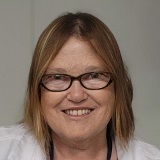
Dr. Baird is Professor of Neurology and Physiology/Pharmacology and Vice-Chair in the Department of Neurology at SUNY Downstate Medical Center in Brooklyn, NY. Dr. Baird received her MB, BS, and PhD degrees from the University of Melbourne in Australia. She pursued post-doctoral work at Harvard Medical School in Boston, MA. where she was appointed to her first faculty position. Throughout her career, Dr. Baird has combined clinical and translational stroke research, focused on novel approaches to early stroke diagnosis and treatment, with clinical practice. During her doctoral studies in Australia and her post-doctoral work at Harvard, Dr. Baird used advanced neuroimaging techniques to study the mechanisms and predictors of tissue and clinical recovery after stroke, including to measure reperfusion after thrombolytic therapy in early clinical trials. Dr. Baird’s neuroimaging studies paved the way for current stroke treatments based on neuroimaging patterns of tissue viability and infarction and for the development of novel reperfusion therapies. In her laboratory in the Intramural Program at the National Institutes of Health (NIH) she expanded this work of neuroimaging markers to blood-based biomarkers, using cellular and molecular profiling of the peripheral blood, to develop clinical and genomic markers for stroke detection. Dr. Baird has successfully collaborated with Dr. Soper for over a decade to pioneer and seek development of a point-of-care testing (POCT) technology for the rapid monitoring of minute changes in the expression levels of different molecular markers in stroke. They are currently working to realize the development of an innovative fluidic cartridge and the associated assay for the measurement of mRNA expression changes from extracellular vesicles generated from CD15 and CD8 expressing leukocytes.
Erica Barnell, MD, PhD, Chief Medical and Science Officer, Geneoscopy

Dr. Erica Barnell is an accomplished physician-scientist and entrepreneur who completed her MD/PhD from Washington University School of Medicine in 2023. She co-founded Geneoscopy, a life sciences company focused on developing diagnostic tests for the advancement of gastrointestinal health, and currently serves as its Chief Medical and Science Officer. Dr. Barnell’s leadership role in the pivotal CRC-PREVENT clinical trial supported Geneoscopy's application for FDA approval for its lead diagnostic, ColoSense. ColoSense is an RNA-based noninvasive colorectal cancer screening test for average-risk individuals 45 and older which was recently approved by the FDA. Dr. Barnell is also leveraging this technology to bring precision medicine approaches to individuals with IBD. She has published 29 peer-reviewed manuscripts, holds four patents for Geneoscopy-related technologies, and has written two published book chapters in oncology and precision medicine. Dr. Barnell has also received several prestigious awards, including Forbes 30 Under 30 and Most Influential Business Women by the St. Louis Business Journal.
Jared Bauer, CEO, Seek Labs
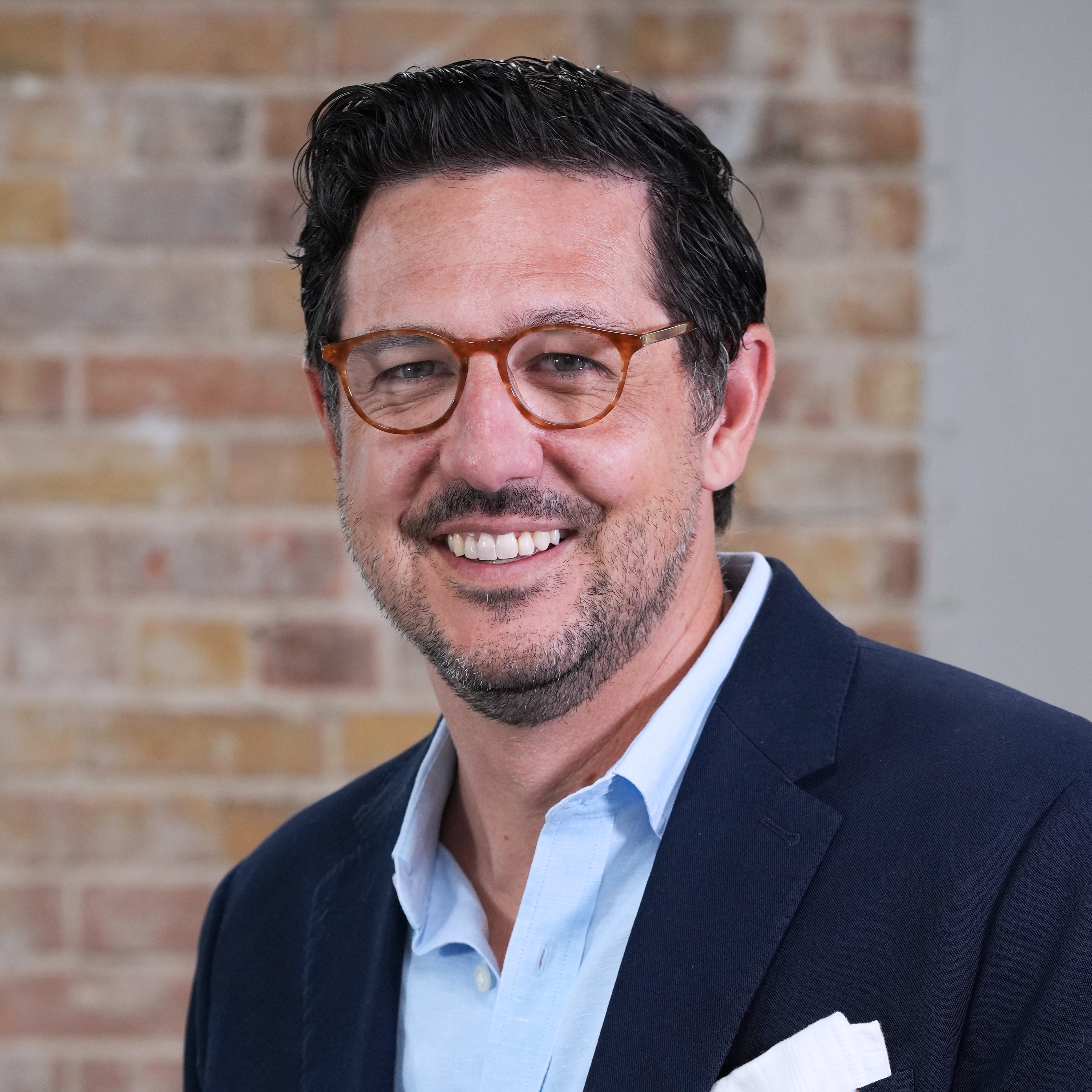
Jared Bauer is CEO of Seek Labs. Bauer has focused his professional endeavors on the medtech industry and is passionate about healthcare innovation. He also currently serves as the CEO of IONIQ Sciences, trustee of The Oliver Fund (a non-profit he co-founded with his wife, Sarah), member of BioUtah’s Board of Directors, Chairman of BioHive. He holds a BS in Economics from the University of Utah and an MBA from Boise State University.
Meri Beckwith, Co-Founder, Lindus Health Ltd.
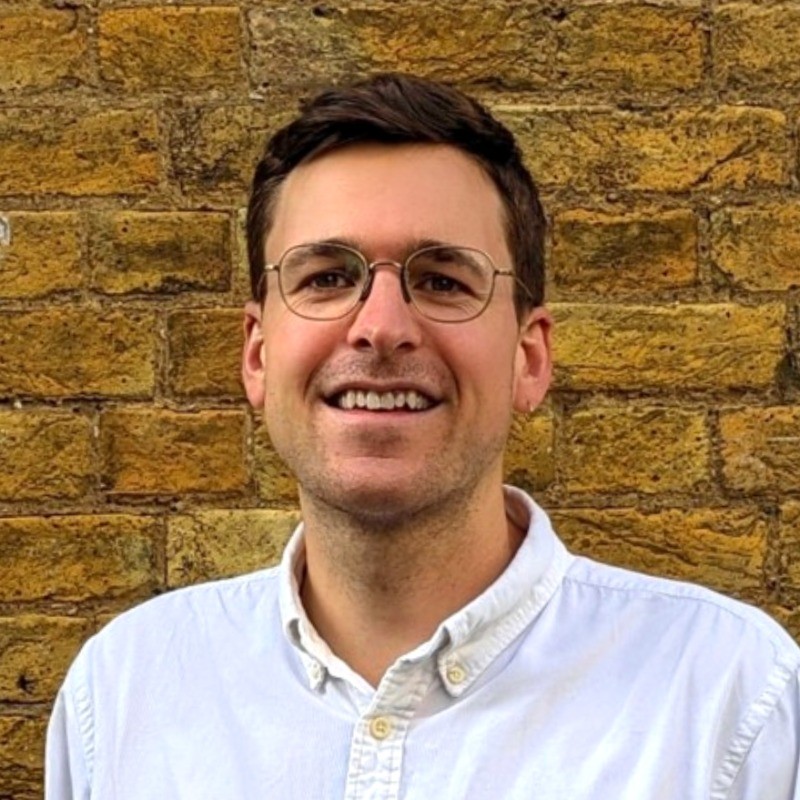
Meri is a co-founder at Lindus Health. He was previously a venture capital investor and partner to biotech and digital health companies.
Tomasz Beer, MD, CMO, Multi-Cancer Early Detection, Exact Sciences Corp.

Dr. Tomasz (Tom) Beer serves as Chief Medical Officer for Multi-Cancer Early Detection at Exact Sciences Corporation since August 2022. Dr. Beer also serves as Adjunct Professor of Medicine at the OHSU Knight Cancer Institute, where he sees men with prostate cancer. Until August 2022, Dr. Beer was the Grover C. Bagby Endowed Chair for Prostate Cancer Research at the OHSU Knight Cancer Institute, where he led the Prostate Cancer Research Program, encompassing basic research, translational research, clinical trials of novel therapeutic strategies in prostate cancer, and studies aimed at enhancing cancer survivorship. He has authored or co-authored more than 280 peer reviewed articles, including investigations of targeted therapies and immunotherapies in prostate cancer, among them vitamin D receptor agonists, androgen receptor antagonists, PSMA targeted radiopharmaceuticals, clustering targeting agents as well as cancer vaccines, CTLA-4 and PD-1 inhibitors, and others. He led the global randomized trial of enzalutamide vs. placebo that demonstrated substantial improvements in overall and progression-free survival as well as quality of life and served as the basis for a global change in the standard of care for advanced prostate cancer. Dr. Beer also served as Deputy Director of the OHSU Knight Cancer institute, and NCI designated Comprehensive Cancer Center and Chief Medical Officer for the Center for Early Detection Advanced Research (CEDAR) within the Knight where he worked closely with a diverse leadership team to speed advances in the early detection of lethal cancers. At CEDAR, Dr. Beer fostered collaborations between clinicians, engineers, and cancer biologists to advance discoveries in early detection of cancer and lead clinical trials of multi-omic blood-based cancer early detection tests.
Annie Bell, Senior Director & Head, Medical Affairs, Lumos Diagnostics

Annie Bell is a strategic leader in Medical Affairs with a passion for improving patient lives through early detection of disease. Expertise in cross-functional, global team leadership, including oversight of FDA registration trials, cultivation of collaborative relationships with thought leaders, vendors, as well as development of real-world, health economic evidence. Over 15 years’ of professional experience including: patient management, medical education and clinical study management in the hospital, medical device and in vitro diagnostic industries.
Shannon A. Bennett, MS, Director, Regulatory Affairs, Mayo Clinic & Foundation

Shannon Bennett is an experienced leader in regulatory affairs, quality management, and strategic planning with a proven track record of driving innovation and navigating complex regulatory environments. Shannon currently serves as the Director of Regulatory Affairs in the Department of Laboratory Medicine and Pathology at Mayo Clinic. His primary focus is on providing quality/regulatory guidance and strategy for clinical laboratory test development and verification/validation, interacting with a variety of regulatory and accrediting agencies such as the New York State Department of Health, Food and Drug Administration, and the College of American Pathologists. Shannon is an ASQ Certified Manager of Quality and Organizational Excellence and an Instructor of Laboratory Medicine & Pathology at the Mayo Clinic School of Medicine. He has Master's degrees in Business Administration and Biochemistry/Structural Biology.
Gabriel Bien-Willner, MD, PhD, Medical Director, MolDx, Palmetto GBA

Dr. Bien-Willner is the Medical Director of the MolDX program at Palmetto GBA, a Medicare Administrative Contractor (MAC). MolDX seeks to understand the molecular testing landscape to implement payer controls, coverage, and to set policy for affiliated MACs, which currently cover 28 states. He is a leader in the Precision Medicine space and practices as a Board-certified Anatomic Pathologist and Molecular Genetic Pathologist. Throughout his career, he has been active in research, development, and advancement of molecular diagnostic services, specifically next-generation sequencing. He has worked closely with clinicians to develop clear clinical diagnostic and treatment pathways directing Precision Medicine programs for community cancer centers. Dr. Bien-Willner received his MD and PhD degrees from Baylor College of Medicine, with a PhD in Human Molecular Genetics. He completed his residency, fellowship, and attained a faculty appointment at Washington University in St. Louis prior to leadership roles in laboratory and biotech companies before joining Palmetto GBA.
Stacey Brown, Market Access Lead, Optum Genomics

Stacey leads Market Access for Optum Genomics, overseeing all related engagements with diagnostic company clients. Stacey has a couple decades' worth of payer relations and market access experience in the molecular diagnostic space. Prior to joining Optum, she spent many years at Myriad Genetics, in roles with increasing responsibility for securing coverage and reimbursement with regional, national, and government sponsored payers. Stacey went on to spend many years at Foundation Medicine, leading Market Access, and played a large role in the company successfully completing the FDA and CMS parallel review of the first comprehensive genomic profiling companion diagnostic assay. Stacey has also spent time at Sera Prognostics and GeneDx.
J. Quincy Brown, PhD, Associate Professor, Department of Biomedical Engineering, Tulane University
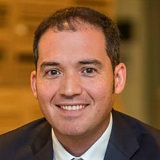
J. Quincy Brown, PhD, is an Associate Professor of Biomedical Engineering at Tulane University. He received the B.S. and PhD degrees in Biomedical Engineering from Louisiana Tech University in 2001 and 2005, respectively. This was followed by an NIH NRSA Postdoctoral Fellowship at Duke University. He is a biomedical engineer whose career has been focused on the development and translation of light-based sensing and imaging technologies for improving management of patients with diseases such as diabetes and cancer. His expertise is specifically in cancer, diabetes, surgical anatomic pathology, tumor microenvironment, advanced microscopy, tissue optical spectroscopy, luminescent chem-biosensors, nanotechnology, digital pathology informatics, and technology translation. He has developed technologies for intradermal optical glucose monitoring; characterizing tumor vascularity and oxygenation in humans in vivo using optical spectroscopy; characterizing cellular metabolism via optical redox ratio; spectral imaging of tumor margins ex vivo; and rapid ex vivo microscopy of clinical biopsies and surgical tumor margins, among others. He has also been involved in technology translation with two separate university start-ups, contributing to the advanced development and commercialization of a tissue spectroscopy device (Zenalux Biomedical, Inc.) and point-of-care biopsy imaging system (Instapath Inc). As director of the Translational Biophotonics Laboratory at Tulane, major themes in his current research are the use of novel imaging devices and computational analysis tools to improve patient outcomes in surgical tumor removal in organs where positive surgical margins are a factor affecting prognosis; rapid screening of biopsies at the bedside for maximizing biospecimen quality for diagnosis and personalized medicine; and new technologies and applications for human-machine interaction in real-time hybrid analog-digital pathology. His research work is highly interdisciplinary and translational in nature, and he and his trainees collaborate closely with clinicians, scientists, and engineers from diverse backgrounds.
Shilpa J. Buch, PhD, Professor, Pharmacology & Experimental Neuroscience, University of Nebraska, Omaha

Dr. Buch is a Professor and Executive Vice-Chair of the Department of Pharmacology and Experimental Neuroscience at University of Nebraska Medical Center. Her research focuses on understanding the neuropathogenesis of HIV/SIV infection using cell culture, rodents, and macaques as model systems. She is the director of the Nebraska Center for Substance Abuse Research, the mission of which is to promote and enhance drug abuse research and mentor trainees in this area. Dr. Buch is a Member of the European Academy of Sciences and a Member of the Royal Academy of Belgium.
Blake W. Buchan, PhD, Associate Professor, Pathology, Medical College of Wisconsin

As Assistant Professor of Pathology, Dr. Buchan is active in educational, clinical, and academic missions. He currently serves as the Associate Residency Program Director for Clinical Pathology, Course Director for the PGY-1 Molecular Pathology rotation, and attending faculty for the PGY-2 Microbiology rotation. In these roles he leads trainees in practical, didactic, and discussion sessions related to education in clinical microbiology and molecular diagnostics. Clinically, Dr. Buchan is the Associate Director for Clinical Microbiology and Molecular Diagnostics. He oversees multiple aspects of the clinical microbiology laboratory including test interpretation, review of daily results, council of technologists, and serves a consultant to clinical colleagues involved in direct patient care. Academically, Dr. Buchan serves as Principal Investigator for numerous clinical trials involving new diagnostic assays for the identification of bacterial, viral and fungal pathogens and is a member of the editorial board for the Journal of Clinical Microbiology and the American Journal for Clinical Pathology.
Christine P. Bump, JD, MPH, Principal, Penn Avenue Law & Policy

Christine P. Bump, Principal and founder of Penn Avenue Law & Policy, is an insightful regulatory attorney with two decades of experience developing and implementing FDA strategies for devices, diagnostics, digital health platforms, and genetic and genomic tests. She advises laboratories, large corporations, and emerging companies with an awareness and understanding of their business and strategic goals. Christine has served as regulatory counsel for a national diagnostic coalition, written several articles, and presented at numerous industry conferences. Before starting her firm, she practiced at Hyman, Phelps, & McNamara, P.C. and in the Life Sciences group at Goodwin. Christine earned a B.A. from Sweet Briar College, an M.P.H. from Emory University’s Rollins School of Public Health, and a J.D. from Emory University School of Law.
Stefan Burde, PhD, Director, Global Strategic Business Development, TÜV SÜD America, Inc.

Stefan Burde, PhD is the Director, Global Strategic Business Development IVD at TÜV SÜD, a leading full-scope Notified Body under the European Medical Device and In Vitro Diagnostic Regulations (EU) 2017/745 and (EU) 2017/746. Stefan holds a PhD in Pathology from the University of Rochester, and has over 13 years of experience in the in vitro diagnostic industry and over 10 years of Notified Body experience as an auditor, technical documentation reviewer, and strategic director. He has spoken extensively at international conferences on topics related to IVDR implementation and compliance.
- SPECIAL FORUM: Point-of-Care Histology
- Advancing Novel Frameworks for Companion Diagnostics
- Early Cancer Surveillance
- Liquid Biopsy for Disease Management
- Advanced Diagnostics for Infectious Disease
- SPECIAL FORUM: Point-of-Care Product Strategies, Market Access, and Implementation
- SPECIAL FORUM: Regulatory Strategies for Point-of-Care Diagnostics
- Emerging Trends in Coverage and Reimbursement for Advanced Diagnostics
- Decentralized POC Testing
- Enabling Point-of-Care Diagnostics
Tara Burke, PhD, Vice President, Payment and Healthcare Delivery Policy, AdvaMed

Tara Burke joined AdvaMed in 2022 and currently serves as Vice President of Payment and Healthcare Delivery Policy. Previously, she served as Senior Director of Public Policy and Advocacy at the Association for Molecular Pathology, where she focused on the regulatory and reimbursement issues affecting molecular diagnostics. Dr. Burke has over a decade of biomedical research experience specializing in biochemistry, molecular genetics, and epigenetics. After receiving her BS in Molecular Biology from Vanderbilt University and a PhD in Biochemistry and Molecular Genetics from The University of Virginia, she completed a postdoctoral fellowship at The National Institute of Child Health and Human Development (NICHD) at the NIH. Her training and research in molecular genetics showed her the hope and promise that genetics can bring to improving human health, and she is proud to be able to work towards the realization of this goal.
Susan Butler-Wu, PhD, D(ABMM), SM(ASCP), Associate Professor of Clinical Pathology, Keck School of Medicine of USC; Director, Clinical Microbiology Laboratory, LAC+USC Medical Center

Dr. Butler-Wu is the Director of Clinical Microbiology at LAC+USC Medical Center and an Associate Professor in the Department of Pathology at Keck School of Medicine of USC in Los Angeles, California. She is a Diplomate of the American Board of Microbiology, a member of the Editorial Board for the Journal of Clinical Microbiology and is active in committee work for the American Society of Microbiology and the Clinical Laboratory Standards Institute. Dr. Butler-Wu’s research interests include rapid diagnostics for the detection of infection and antimicrobial resistance.
Gerard A. Cangelosi, PhD, Professor, Environmental & Occupational Health Sciences, University of Washington

Dr. Jerry Cangelosi is Professor in the Department of Environmental & Occupational Health Sciences and Associate Dean for Research for the School of Public Health, University of Washington. Working in both the public and private sectors, Dr. Cangelosi's research teams have generated 10 patents and over 100 publications in relevant areas, including tuberculosis and related diseases, COVID-19, oral microbiology, water-borne pathogens and health care-associated infections. These activities share strong emphases on translation and global health impact. In recent years, he has led or co-led infectious disease studies in the United States, Bangladesh, South Africa, Uganda and Kenya. Among the outputs are novel, non-invasive tuberculosis screening methods that are now in expanded clinical studies worldwide. In spring 2020, amidst the first wave of the SARS-CoV-2 pandemic, his team helped demonstrate similarly non-invasive methods for COVID-19 screening. These methods received accelerated FDA clearance and have become widely implemented in the US and throughout the world. Non-invasive screening for TB and COVID-19 could help to significantly reduce the global burdens of both diseases. Dr. Cangelosi is also adjunct professor in the departments of Global Health and Epidemiology. He teaches environmental health courses on environmental change and infectious diseases.
Lon Castle, MD, Associate CMO, Precision Medicine, EviCore

Dr. Castle is responsible for the clinical performance of the Laboratory and Specialty Drug programs at eviCore healthcare, a wholly-owned subsidiary of Cigna. In addition to his decade-long experience with specialty drugs, Dr. Castle has been working in the genomic and molecular diagnostic field since 2007, both designing initiatives that support the advancement of precision medicine as well as managing programs that ensure these tests are used appropriately.
Allison Chambliss, PhD, DABCC, FADLM, Associate Clinical Professor, Department of Pathology & Laboratory Medicine, University of California, Los Angeles

Dr. Allison Chambliss is an Associate Clinical Professor in the Department of Pathology and Laboratory Medicine at UCLA. She serves as the Director of Laboratory Stewardship, with a focus on optimizing the value of laboratory services provided by UCLA Health. In this role, she leads a laboratory stewardship program to support various laboratory, department, hospital, and health system initiatives and strategic goals. She is also a member of the Department’s Clinical Chemistry section, providing clinical service and trainee education.
Florent Chang-Pi-Hin, PhD, Vice President, R&D Life Science, Meridian Bioscience

Dr. Florent Chang-Pi-Hin, PhD, serves as the Vice-President of Research and Development at Meridian Life Science, leading global R&D efforts while also acting as the site lead for operations in the UK. With over 15 years of expertise in molecular and protein sciences, Florent directs the development of new products and the integration of innovative technologies. Based in London, UK, his molecular R&D team focuses on creating vital reagents such as qPCR and isothermal enzymes and chemistries crucial for MDx development within the global diagnostic industry. Recent technological advancements, enabling stabilization of MDx assays at room temperature or inhibitor-tolerance, spearheaded by Florent's team, are pivotal in reshaping molecular diagnostics in the aftermath of the COVID-19 pandemic.
Adam S. Chesler, PharmD, MBA, Senior Vice President, Pharmacy Integration and Strategic Alliances, VillageMD

Adam Chesler is currently the Senior Vice President of Strategic Initiatives with VillageMD, and has more than 20 years of experience in healthcare including positions as Vice President of Operations for TelePharm, Director of Regulatory and Legislative Affairs for Cardinal Health, Director of Strategic Alliances for PTCB, and Manager roles with Walgreens and Target. He is a graduate of the University of Miami with a bachelor's degree in Health Science, and also earned a doctorate degree in Pharmacy and a masters in business administration from the University of Texas.
B. Melina Cimler, PhD, CEO & Founder, PandiaDx LLC

Melina Cimler is the CEO and Founder of PandiaDx LLC. She has over 30 years of experience in the life science and regulated diagnostic industry leading regulatory, quality systems, clinical affairs, research, and product development organizations with a focus on precision medicine. Dr. Cimler served as Senior Vice President of Regulatory & Quality at Adaptive Biotechnologies until April 2018. In her role, she developed the regulatory strategy for NGS-based immune sequencing products and led regulatory interactions with pharma partners to allow use of NGS-based minimal residual disease tests in oncology drug trials and submissions. She was previously Head of Global Quality and Vice President of Quality, Regulatory, Clinical, and Government Affairs at Illumina Inc. She defined and executed on the regulatory strategy resulting in the first next-generation sequencing platform (Illumina’s MiSeqDx) receiving FDA marketing authorization. She serves on the Board of Directors of Nanostics, Inc. and Monod Bio, Inc. She also currently serves as an Expert Consultant at NDA Partners. Previously, she held leadership positions in quality, regulatory, and government affairs as Senior Vice President at Beckman Coulter, Inc. (now Danaher). She also served in senior quality, clinical, and regulatory roles at Abbott Molecular, Gen-Probe Inc. (now Hologic), C.R. Bard, and Epitope, Inc. (now OraSure Technologies). Dr. Cimler holds a Ph.D. in Pharmacology from the University of Washington.
- SPECIAL FORUM: Point-of-Care Histology
- Advancing Novel Frameworks for Companion Diagnostics
- Early Cancer Surveillance
- Liquid Biopsy for Disease Management
- Advanced Diagnostics for Infectious Disease
- SPECIAL FORUM: Point-of-Care Product Strategies, Market Access, and Implementation
- SPECIAL FORUM: Regulatory Strategies for Point-of-Care Diagnostics
- Emerging Trends in Coverage and Reimbursement for Advanced Diagnostics
- Decentralized POC Testing
- Enabling Point-of-Care Diagnostics
Cristina Costales, MD, Assistant Director, Clinical Microbiology and Virology, Department of Pathology and Laboratory Medicine, Children’s Hospital Los Angeles

Dr. Cristina Costales is an Attending Physician under the Department of Pathology and Laboratory Medicine at Children's Hospital Los Angeles. She is an Assistant Professor of Clinical Pathology at the Keck School of Medicine of USC. Her major areas of research interest include clinical application of infectious disease diagnostics and pathology service expansion in global health.
Heather D. Couture, PhD, Consultant & Researcher, Pixel Scientia Labs LLC; Individual Consultant

Heather D. Couture is a consultant and founder of Pixel Scientia Labs where she partners with mission-driven founders and R&D teams to support applications of computer vision for people and planetary health. She has two decades of experience in computer vision and machine learning, half of those with applications to pathology. Heather completed a PhD in Computer Science at the University of North Carolina, where her research focused on developing deep learning methods to predict breast cancer molecular biomarkers from H&E. She hosts the Impact AI Podcast and writes regularly on LinkedIn, for her newsletter Computer Vision Insights, and for various other publications.
Elliot Cowan, PhD, Principal, Partners in Diagnostics LLC

Dr. Elliot Cowan is Principal and Founder of Partners in Diagnostics, LLC, providing consulting on the regulation of in vitro diagnostics to IVD manufacturers, as well as to international public health agencies, procurement organizations, regulatory harmonization efforts, governmental bodies, and philanthropic foundations. This followed a 20-year career at the US Food and Drug Administration, where he was responsible for leading the regulation of all blood donor screening tests and retroviral diagnostics used in the US, including the first over-the-counter HIV test system, approved in 2012. Elliot was also a member of the Laboratory Technical Working Group for the President’s Emergency Plan for AIDS Relief (PEPFAR), providing technical assistance for laboratory quality assurance issues in PEPFAR focus countries, and advised the World Health Organization on the development and restructuring of its Prequalification of Diagnostics Programme. Elliot received a BA from Williams College and a PhD in Biology and Biomedical Sciences from Washington University in St. Louis.
Jennifer Dien Bard, PhD, D(ABMM), Director, Microbiology and Virology, Children’s Hospital Los Angeles; Professor, Pathology and Laboratory Medicine, Keck School of Medicine, University of Southern California

Dr. Jennifer Dien Bard, is the director of the clinical microbiology and virology laboratories at Children’s Hospital Los Angeles (CHLA) and Professor of Pathology with Clinical Scholar designation at the University of Southern California Keck School of Medicine. Dr. Dien Bard’s research interests include studying the application of rapid diagnostics in the clinical setting to determine clinical utility. She has authored more than 80 scientific peer-reviewed publications and is a frequent speaker on the topics of molecular diagnostics.
Christopher Doern, PhD, D(ABMM), Director of Microbiology, Associate Professor of Pathology, Virginia Commonwealth University Health System/Medical College of Virginia
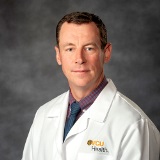
Dr. Doern received his PhD from the Wake Forest University School of Medicine and went on to do a fellowship in Medical and Public Health Microbiology at the Washington University School of Medicine in St. Louis, Missouri.Dr. Doern has been very involved in the implementation and study of new technologies in the clinical microbiology laboratory and understanding the impact of those technologies on patient care and laboratory workflow.Dr. Doern serves on a number of Health System committees such as the Antimicrobial Stewardship Committee, the Hospital Infection Prevention Committee, the Pediatric Clinical Guidelines Committee, the Pediatric Sepsis Committee, and is Co-chair of the Laboratory Utilization Committee. Nationally, he serves as the founder and co-organizer of the Pediatric Microbiology Director’s Annual Meeting and Co-Chair of the American Society for Microbiology’s Clinical Microbiology Open meeting. He is also the author of the ASM Clinical Microbiology Pocket Guide book which serves as a user friendly reference for practicing clinical microbiologists
Nicholas C. Dracopoli, PhD, CSO, Delfi Diagnostics

Nicholas Dracopoli, Ph.D. is Chief Scientific Officer at Delfi Diagnostics. Previously, his work focused on oncology translational science at PGDx, Janssen and Bristol Myers Squibb. Prior to joining the pharmaceutical industry, he spent five years in the biotechnology industry at Sequana Therapeutics. Nic obtained his bachelor’s degree and doctorate from the University of London and completed post-doctoral fellowships at the Memorial Sloan-Kettering Cancer Center in New York City, NY and the Massachusetts Institute of Technology (MIT) in Cambridge, MA. Subsequently, he served as an Assistant Director at the Whitehead/MIT Genome Center and as a Section Chief at the National Center for Human Genome Research at the National Institutes of Health, Bethesda, MD. Nic has authored more than 70 scientific publications and has extensive experience in the fields of genomics, molecular biology and cancer research.
Tom Draney, MHA, Associate Director, Customer Experience, Exact Sciences

Tom Lee Draney, MHA, is striving to make cancer screening as simple as shopping online. In 2023, he led the delivery of consumer-initiated ordering for Cologuard, a non-invasive, effective, at-home colon cancer screening test. Tom is a Product Manager for Exact Sciences, and his Customer Experience team embraces Agile methodologies to iteratively deliver value for the customers and patients they serve.
Craig Eagle, PhD, CMO, Guardant Health

Dr. Eagle is currently Chief Medical Officer of Guardant Health Inc. Previously Dr. Eagle served as Vice President of Medical Affairs Oncology for Genentech. Prior to Genentech, Dr. Eagle has held several senior leadership positions in the U.S. and internationally over his 19-year career at Pfizer including global head of the Oncology Medical and Outcomes Group. Dr. Eagle attended medical school at the University of New South Wales in Sydney, Australia and completed his specialist training in clinical hematooncology and hematology Pathology in Australia before moving to the US.
Daniel Edelman, PhD, Program Officer, Health Scientist Administrator, Early Detection Research Group, Division of Cancer Prevention, National Cancer Institute, National Institutes of Health

Daniel Edelman, M.S., Ph.D., joined the Early Detection Research Group (EDRG) in the Division of Cancer Prevention (DCP) in November 2023 as a Program Officer/Health Scientist Administrator. Dr. Edelman primarily works on matters related to the Cancer Screening Research Network (CSRN), a new clinical trials network that will systematically evaluate different technologies related to cancer screening. Before joining DCP, Dr. Edelman worked as a Policy Analyst for three years in the Food and Drug Administration (FDA) Office of In Vitro Diagnostics within the Center for Devices and Radiological Health. At FDA, he was involved in company regulatory submissions, policy development and implementation for companion diagnostics and oncology related tests. He also served as an FDA Scientific Reviewer for microbiology in the area of in vitro diagnostic devices in 2006-2007. Before joining the FDA, Dr. Edelman worked for 13 years at NCI’s Center for Cancer Research as the Facility Manager of the Clinical Molecular Profiling Core. This state-of-the-art, genomic CLIA laboratory actively supported NCI translational and clinical cancer research at the NIH Clinical Center. Early in his career he worked as a Research Associate at the VA Medical Center, Baltimore, MD, and as a Molecular Technologist at the University of Maryland Medical Center, Baltimore, MD. Dr. Edelman has expertise in translational oncology, laboratory medicine, and infectious disease research and diagnostics. He received an M.S. in applied molecular biology from the University of Maryland, Baltimore County, and a Ph.D. in medical pathology from the University of Maryland, Baltimore.
David Erickson, PhD, SC Thomas Sze Director, Professor, Director, PORTENT Center for Point-of-Care Technologies for Nutrition, Infection, and Cancer in Global Health, Mechanical, and Aerospace Engineering, Cornell University

David Erickson is the SC Thomas Sze Director and Sibley College Professor in the Sibley School of Mechanical and Aerospace Engineering at Cornell University. He is also a joint Professor within the Division of Nutritional Sciences and was previously the Associate Dean of Engineering for Research and Graduate Programs. Prof. Erickson is the director of the NIH POCTRN Center “PORTENT - Center for Point of Care Technologies for Nutrition, Infection, and Cancer in Global Health." His research focuses on: global health technology, medical diagnostics, microfluidics, photonics, and nanotechnology. Prior to joining the faculty, he was a postdoctoral scholar at the California Institute of Technology and he received his Ph.D. degree from the University of Toronto. Research in the Erickson lab is or has been primarily funded through grants from the NIH, NSF, ARPA-E, ONR, DoD, DOE, DARPA, USAID, USDA, Nutrition International, Global Alliance for Improved Nutrition, and other foundations. Prof. Erickson has helped to found numerous start-up companies commercializing: high-throughput pharmaceutical instrumentation, biomedical diagnostics, and energy technologies including Halo Labs, VitaScan and Dimensional Energy. Prof. Erickson has received the DARPA-MTO Young Faculty Award, the NSF CAREER Award, the Department of Energy Early Career Award, among others. In 2011 he was awarded the Presidential Early Career Award for Scientist and Engineers (PECASE) by President Obama. Erickson has been named a fellow of the Optical Society of America, the American Society of Mechanical Engineers, the American Institute of Medical and Biological Engineering, and the Canadian Academy of Engineering.
Juan Espinoza, MD, Chief Research Informatics Officer, Stanley Manne Children’s Research Institute, Ann & Robert H. Lurie Children’s Hospital of Chicago; Director, Consortium for Technology & Innovation in Pediatrics (CTIP); Associate Director, Center for Biomedical Informatics and Data Science, Northwestern University Feinberg School of Medicine

Juan Espinoza, MD, is the Chief Research Informatics Officer at Lurie Children's Hospital and Associate Director of the Center for Biomedical Informatics and Data Science at Northwestern University. He is also the Director and Principal Investigator of the Consortium for Technical & Innovation in Pediatrics, an FDA funded pediatric medical device accelerator. His research focuses on identifying, refining, and innovating approaches to using data, media, and technology to improve health outcomes and narrow the health gap faced by marginalized communities in the US and abroad. His work on diabetes device data and data integration standards is rooted in collaboration with industry, regulatory agencies, researchers, and healthcare organizations, and has been critical to the advancement of the field.
Joseph Featherstone, Executive Vice President, Business Development, Co Diagnostics, Inc.

No bio available.
Lauren Feldman, Vice President and Head, Value, Access, and Pricing, ADVI

Lauren brings more than 14 years of precision medicine expertise to the ADVI team and her clients. She leads ADVI’s value, access, and pricing work. With a primary focus on molecular diagnostics, she develops innovative commercialization and clinical valuation strategies designed to improve access and accelerate the adoption of precision medicine tools and therapies. Lauren has extensive expertise in oncology products, advising on all aspects of reimbursement, market access, and strategic policy planning. She specializes in launch planning and execution, CPT coding, and Medicare payment policy. She is passionate about providing meaningful, integrated solutions to deliver on the value of genomics-based precision medicine. Prior to ADVI, Lauren worked at the American Medical Association where she was responsible for crafting and implementing innovative coding solutions for disruptive technologies. Prior to the AMA, Lauren worked for a start-up biotechnology company performing discovery research and began her career in academic research at Harvard Medical School and Brigham and Women’s Hospital.
Farzad Fereidouni, PhD, Adjunct Assistant Professor, Pathology & Lab Medicine, University of California, Davis
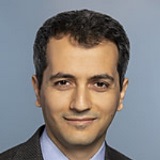
Dr. Fereidouni is an experimental physicist with extensive expertise in the development of imaging instrumentation and computational methods for tissue and cellular microscopy applications. His current focus is on creating novel imaging approaches with direct application in pathology and patient care.
Lina Gasiunaite, Team Leader, R&D, Meridian Bioscience

Lina is the R&D Team Leader at Meridian Bioscience, creating innovative solutions for the diagnostic industry.Formerly, as Director of Science and founder at Biotangents, she spent 7 years developing diagnostic tests for animal diseases, suitable for lab and field use. Her early career focused on metabolic engineering in synthetic biology and cancer biomarker research, building on her academic foundation in Molecular Biology and Biotechnology
David C. Gaston, MD, PhD, Assistant Professor, Department of Pathology, Microbiology, and Immunology, Medical Director, Molecular Infectious Diseases Laboratory (MIDL), Vanderbilt University Medical Center

David Gaston is a clinical microbiologist and infectious disease physician. He obtained his MD and PhD in the University of Alabama at Birmingham Medical Scientist Training Program (MSTP), thereafter completing internal medicine residency at the University of Utah, infectious disease fellowship at Yale-New Haven Hospital, and clinical microbiology fellowship at Johns Hopkins Hospital. He directs the Molecular Infectious Disease Laboratory (MIDL), a section of the clinical microbiology laboratory at VUMC. His clinical and research interests are development and implementation of molecular methods (specifically next-generation sequencing technologies) for rapid, robust, and reliable pathogen identification and characterization in infectious disease diagnostics.
Deborah R. Godes, Vice President, McDermott+Consulting LLC

Deborah Godes advises clients on reimbursement and policy strategy for medical devices, diagnostics, biologics and health services by public and private payors. With more than 25 years of health industry experience, Deborah leverages her deep knowledge and strong industry relationships to deliver strategic, operational and policy consultative services to companies of all sizes, from start-ups to Fortune 100 companies. Due to her deep background in working with clients across the healthcare services spectrum, Deborah has a detailed understanding of the market access process and the historical successes to help healthcare clients with emerging and innovative technologies achieve their goals. For the past decade, Deborah has worked alongside healthcare innovators to advance their market access goals, including: - Navigating the complex Centers for Medicare and Medicaid Services (CMS) landscape; - Addressing the challenges and opportunities of bringing eproducts to market; and - Providing insight on the US healthcare system and the health industry to new healthcare players based in the US and abroad. Deborah also collaborates with clients pursing Medicare coding, coverage and payment of their groundbreaking, digitally-enabled healthcare solutions and services, including diagnostic tests and medical devices, artificial intelligence (AI)-powered technologies, remote monitoring tools, and other innovative health services. Her work encompasses assessing the various pathways in federal testing and the requirements needed to obtain additional or incremental payment. Deborah has been successful in obtaining favorable payment rates under the Medicare Clinical Laboratory Fee Schedule, incremental payment in the hospital inpatient and outpatient setting, and procedure, product and diagnosis codes. Prior to joining McDermottPlus, Deborah was a senior leader at a health technology company focused on the healthcare benefits industry. She also held roles at several consulting firms where she focused on corporate and product strategy for health plans launching new products in the private sector, built health economic models, and analyzed data to assess the effectiveness of federal and state health programs.
Andrew K. Godwin, PhD, Professor and Division Director, Genomic Diagnostics; Deputy Director, KU Cancer Center; Founding Director, Kansas Institute for Precision Medicine; Chancellors Distinguished Chair in Biomedical Sciences Endowed Professor, Department of Pathology and Laboratory Medicine, University of Kansas Medical Center
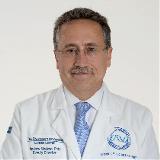
Andrew K. Godwin, PhD is the Chancellors Distinguished Chair in Biomedical Sciences endowed Professor, Director of Molecular Oncology, and the Division Director of Genomic Diagnostics in the Department of Pathology at the University of Kansas Medical Center (KUMC). In the latter position, he oversees the CLIA-certified/CAP-accredited Clinical Molecular Oncology Laboratory, which he founded in 2011, Clinical Cytogenetics, and Molecular Microbiology. He also heads the institutional efforts in precision medicine. Andy graduated with highest distinction from the University of Kansas with a bachelor’s degree in Cellular Biology. He obtained his PhD in Molecular Biology from the University of Pennsylvania while carrying out his thesis research at Fox Chase Cancer Center in Philadelphia. Andy holds the distinction of being the only graduate student at FCCC to become a senior member (full professor with tenure). While at FCCC he had the pleasure of learning from “giants” in their respective fields of science. He was appointed leader of the FCCC’s Cancer Center Support Grant Ovarian Cancer Program in 2008 and served as co-leader of the Women's Cancer Program from 2009 to 2010. He was also the founding director of both the Clinical Molecular Genetics/Pathology Laboratory and the Biosample Repository at FCCC since their inception in 1995 and 1999 respectively, until leaving FCCC. Andy was recruited to KUMC as the Associate Director for Translational Research for the Cancer Center in October 2010 after 26 productive years at Fox Chase and his engaged participation as a member of the Cancer Center’s leadership team that led to NCI-designation for the first time in July 2012 (renewed in July 2017) and resulted in him being promoted to Deputy Director in 2013. In July 2022, under Drs. Roy Jensen (director) and Godwin’s leadership, the KU Cancer Center was awarded comprehensive designation by the NCI. Godwin also serves as the founding Director of the KUCC’s Biospecimen Repository Core Facility as well as the Scientific Director for the Biomarker Discovery Laboratory (BDL). He also initiated the Center for Genetic Services and Health Equity in 2019 and has seen this community-based activity impact medically underserved and marginalized individuals in our region. He was named a Kansas Bioscience Authority Eminent Scholar in 2010 and the Biorepository Coordinator for the HICTR Translational Technologies Resource Center in 2011. Andy holds secondary appointments as a Professor in the Departments of Internal Medicine, Cancer Biology, and Microbiology, Molecular Genetics, and Immunology at KUMC. He also leads the ovarian cancer research-working group, is a member of the Investigator Initiated Trial Steering Committee. He was named the Vice Chair for the Breast Translational Medicine subcommittee of the Southwest Oncology Group in 2018. Andy is the founding director of the Kansas Institute for Precision Medicine which is supported by a Centers of Biomedical Research Excellence award (P20 GM130423) in 2019. He was named a Kansas Bioscience Authority Eminent Scholar in 2010 and the University of Kansas School of Medicine Chancellor’s Distinguished Chair in Biomedical Sciences Endowed Professor in 2012. In 2014, Andy received the KUMC School of Medicine’s Achievement Award for the mentoring of post-doctorate students. Of his awards, he is most proud of being acknowledged for his years of mentoring. He has mentored over 200 trainees, including high school students, undergraduates, graduate students, postdoctoral associates/fellows, medical students/fellows, visiting scientists, and junior faculty during his academic career. He was awarded the KU Medical Center’s Faculty Investigator Research Award in 2015, the University of Kansas Cancer Center Director’s William Jewell Team Science Award in 2017, the KUCC Director’s Basic Science Award and the Chancellor’s Club Award for Research in 2018, and the Dolph C. Simons, Sr. Higuchi Award in the Biomedical Sciences in 2019 - the state higher education system’s most prestigious recognition for scholarly excellence. Most recently, Andy was presented with the 2021 KU School of Medicine Excellences in Mentoring (Faculty) award and the 2021 Cancer Center Director’s Award in Mentoring and was named the 2022 Lead Scholar in Biomedical Sciences by the Ewha Womans University in South Korea. Andy is internationally recognized for his molecular biology/genetic studies of sarcoma (gastrointestinal stromal tumors and Ewing sarcoma), breast and ovarian cancer, and his efforts to help bridge the gap between basic and clinical science to improve patient care. He is an NIH/NCI/NIGMS funded investigator and a highly published (>550 manuscripts and scholarly review articles) and cited (over 90,000) scientist. His research program continues to focus on various aspects of both basic and translational research, with an emphasis on early detection of cancer, predictive and prognostic biomarkers, liquid biopsies based on extracellular vesicles, molecular therapeutics, companion diagnostics, clinical trials, and biosample ascertainment. He has dedicated his scientific career to improve the care for patients diagnosed with cancer.
Hilary Gee Goeckner, MSW, Director, State and Local Campaigns, Access to Care, American Cancer Society Cancer Action Network (ACS CAN)

Hilary Gee Goeckner, MSW is director of state and local campaigns for the American Cancer Society Cancer Action Network (ACS CAN), the advocacy affiliate of the American Cancer Society. In this role she leads work with ACS CAN staff and coalition partners across the country to improve access to comprehensive biomarker testing, clinical trials, fertility preservation and other health care access issues. Prior to this role, Hilary served as the Kansas government relations director for ACS CAN, leading statewide advocacy efforts promoting evidence-based policy and legislative solutions designed to eliminate cancer as a major health problem. Before joining ACS CAN, Hilary served as director of health policy at Kansas Action for Children. She holds a bachelor’s degree in anthropology and global health from Williams College and a master’s degree in social work from Boston College. She lives in San Diego with her husband and two children.
Tanya Gottlieb, PhD, Vice President, Scientific Affairs, MeMed

Dr. Tanya Gottlieb has a wealth of experience in the fields of biotechnology, diagnostics, and healthcare. Today, she serves as Vice President of Scientific Affairs at MeMed, a company pioneering host response technologies. Tanya is responsible for driving international collaborations aimed at improving management of patients with acute infection, promoting responsible use of antibiotics through innovative tools that support decision-making. She has coordinated governmental partnerships that establish MeMed’s lead technology for differentiating between bacterial and viral infection as a flagship innovation supporting appropriate antibiotic use. Dr. Gottlieb conducted her postdoctoral research at the Weizmann Institute of Science, Israel, and the Fred Hutchinson Cancer Research Center in Seattle, WA, USA. She holds a BA in Natural Sciences and a PhD from Cambridge University in the UK and an MBA from the Technion in Israel.
Bernard Gouget, PhD, Chair, IFCC Committee on Mobile Health and Bioengineering in Laboratory Medicine (C-MHBLM)

Dr. Bernard GOUGET is currently serving as President of the National Committee for the selection of Reference Laboratories (Ministry of Health, France) and ex-President of the Healthcare Division Executive Committee (Comité Français d’accréditation - Cofrac). He was formerly an Associate Professor in physiology at Necker-sick children University Hospital, Paris-Cité (FR). With over three decades of engagement with the International Federation of Clinical Chemistry and Laboratory Medicine (IFCC), Dr. Gouget has occupied various key roles, including Chair of committees, division, and Executive Board member and IFCC Treasurer. He currently chairs the Task Force on IFCC History and has been recently appointed to the IFCC Emerging Technology Division-Executive Committee, spearheading initiatives to integrate disruptive innovations into laboratory medicine practices.
Tod Guidry, PhD, Associate Director, Regulatory and Diagnostics Policy, LUNGevity Foundation

Tod Guidry, PhD, is Associate Director of Regulatory and Diagnostics Policy at the LUNGevity Foundation, a non-profit organization dedicated to improving outcomes for patients with lung cancer. Prior to joining LUNGevity in 2021, Tod served as the inaugural Science Policy Fellow for the American Association for Cancer Research (AACR), working with AACR’s Office of Science Policy and Government Affairs as well as with staff of the U.S. House of Representatives Energy and Commerce Committee. Tod earned his PhD from LSU Health-Shreveport in 2018, studying viral co-infection in oral cancer pathogenesis.
Gary Gustavsen, PhD, Partner & Managing Director, Health Advances

Gary Gustavsen joined Health Advances in 2005 and co-leads its Precision Medicine Practice. A noted writer and workshop leader in the field of companion diagnostics and personalized medicine, his work focuses on commercialization strategy, value justification, and due diligence for both diagnostic and therapeutic companies. Prior to joining Health Advances, Gary held research positions at Brookhaven National Lab, Becton Dickinson, OSI Pharmaceuticals, and Millennium Pharmaceuticals. Gary has a background in Biomedical Engineering with a bachelor’s degree from Duke University and a master’s degree from Stony Brook University.
Alberto Gutierrez, PhD, Partner, NDA Partners LLC

Alberto Gutierrez, Ph.D., is a Partner with NDA Partners, a ProPharma Group company. Dr. Gutierrez retired from the FDA in 2017 after 25 years of working in research and regulation. Dr. Gutierrez was the Director of FDA’s Office of In Vitro Diagnostics and Radiological Health for 8 years, responsible for the pre-market review and post-market regulation of in vitro diagnostics and radiology devices, as well as responsible for FDA’s regulation of radiation emitting products and regulation of mammography facilities in the US. Dr. Gutierrez received a bachelor’s degree from Haverford College, and master and doctorate degrees in Chemistry from Princeton University. Dr. Gutierrez’s research experience is in structural organic and organometallic chemistry. Dr. Gutierrez joined the FDA in 1992 as a researcher and reviewer in FDA’s Center for Biologics Evaluation and Research working on vaccine adjuvants and method development for determination of purity and structure of vaccine components. In 2000, he joined the Office of In Vitro Diagnostic Device Evaluation and Safety as a scientific reviewer, joining management in 2003. Dr. Gutierrez moved up the management chain finally reaching executive service level as Director of the Office of In Vitro Diagnostics in 2009. Between 2009 and 2017, the Office grew and he acquired the responsibility for regulating radiological health devices and products and oversight of the mammography program. By 2017, the Office had more than 300 employees. Dr. Gutierrez retired from the FDA in September 2017 and joined NDA Partners as an Expert Consultant, becoming a Partner in May 2018.
Megan P. Hall, PhD, Vice President, Medical Affairs, GRAIL LLC

Megan P. Hall, PhD established and leads Medical Affairs at GRAIL, LLC, where her team is responsible for educating health care providers on, and generating and disseminating evidence supporting, Galleri, a multi-cancer early detection test, as well as on the cancer care landscape. Previously, Megan was Director of Medical Communications at Jazz Pharmaceuticals, where she led healthcare provider-focused publication and education strategies for the company’s hematology/oncology and chronic pain portfolios. Before Jazz, Megan established a Medical Communication team at Natera to support the launch of the Panorama non-invasive prenatal test, and was an editor at the flagship open access journal, PLOS Biology. She also held research roles funded by the American Heart Association, California Institute of Regenerative Medicine, National Institutes of Health, and the Howard Hughes Research Foundation. Megan earned a BS in Biological Sciences (Biochemistry focus) from the University of California at Santa Barbara, and a PhD in Microbiology, Immunology, and Molecular Genetics from the University of California at Los Angeles.
Nicholas Halzack, MPH, Director, Health Policy, Roche Diagnostics

Nick is the Director of Health Policy at Roche Diagnostics Corporation. He believes that diagnostics are one of the most crucial elements to improving public health, and that broad access to new diagnostic technologies is based on a solid foundation of reimbursement and access policies. Prior to Roche, Nick worked on federal health policy at the American Society of Anesthesiologists and Nemours Children's Health System. He holds a M.P.H. in Health Policy from The George Washington University and a B.S. in Biological Sciences from Cornell University.
Sam Hanash, MD, PhD, Director, Red & Charline McCombs Institute; Evelyn & Sol Rubenstein Distinguished Chair, Cancer Prevention; Professor, Clinical Cancer Prevention-Research, Translational Molecular Pathology, University of Texas MD Anderson Cancer Center

Dr. Hanash was recruited to MD Anderson Cancer Center in 2011 to lead the Red and Charline McCombs Institute for Cancer Early Detection and Treatment. He was previously program head for Molecular Diagnosis at the Fred Hutchinson Cancer Research Center. Dr. Hanash’s interest and expertise are in the field of cancer diagnostics and the development of blood-based cancer biomarkers for risk assessment and cancer early detection. He is the inaugural president of the International Human Proteome Organization dedicated to the study of the human proteome, and a founder of the US Human Proteome Organization. Dr. Hanash’s approaches to meet the challenge of developing markers that signal the presence of cancer at an early stage to allow detection and effective treatment have included a rigorous painstaking in-depth quantitative profiling of the various types of molecules in the blood to find those that are released early either from the cancer cells or from the host response to the developing cancer. The work emphasizes the need for rigor in experimental design, in data collection and statistical analysis and in developing a mechanistic understanding of the relationship between the identified cancer markers and the developing cancer. This work has sparked innovation in experimental design and statistical analysis of biomarker data aimed at minimizing biases in discovery studies through prospective sample collections that relate most directly to the intended clinical application(s) and at reducing the false discovery rate through integration of data from multiple sources to increase confidence in the significance of the markers.
Umer Hassan, PhD, Assistant Professor, Electrical & Computer Engineering, Rutgers University

Umer Hassan is an Assistant Professor in the Department of Electrical and Computer Engineering and Core Faculty Global Health Institute at Rutgers University. Before joining Rutgers, he worked as a Research Scientist in the Department of Bioengineering at University of Illinois Urbana-Champaign (UIUC) with a Research Affiliate appointment at Carle Foundation Hospital, Urbana. Dr. Hassan’s research efforts have been focused on developing bioengineering solutions for global-health applications including point-of-care (PoC) biosensors development for disease diagnosis. Dr. Hassan has received Brandt Early Career Investigator Award in Precision Medicine (2017), BMES Career Development Award (2017), Baxter Young Investigator Award (2016, 17), Emerging Engineer Award (2015), Cozad New Venture Competition Award (2014), NSF I-Corps Fellowship (2014) and Our Common Future Fellowship (2010). In 2014, Umer cofounded a startup, Prenosis, Inc. that is working on commercializing his developed biosensors.
Lucy Hattingh, MBA, Principal, Lucy Hattingh Consulting

Lucy has been consulting with IVD test manufacturers since 2015 supporting more than 20 companies and building a deep understanding of all segments of the molecular diagnostics market. She also works for various organisations in the global public health sector where the emphasis is on building access to diagnostics in low- and middle-income countries. She has 30 years of experience commercializing products in the Life Science Research and Diagnostics industries, with a focus on molecular diagnostics. She has managed sales and marketing teams in 3 countries - South Africa, Canada, and the US and has led marketing teams with global responsibility for more than 10 years. She has successfully commercialized IVD tests in diverse market environments - emerging economies and developed markets, markets with both public and private healthcare systems, and innovative new markets as well as competitive, mature markets. She worked for Roche Diagnostics for many years in various roles and subsequently led diagnostics programs for GenProbe Inc. (now Hologic) and Singulex. She holds a Bachelor of Science Honours degree in Medical Biochemistry from the University of Cape Town Medical School, and an MBA from IMD in Switzerland.
Thomas R. Hawn, MD, PhD, Professor, Allergy and Infectious Diseases, University of Washington

Tom’s laboratory examines why individuals have different susceptibility to infections and whether these insights can lead to novel treatment and vaccine strategies. Studies include examining the functional and clinical significance of human variation in the innate immune system and its regulation of susceptibility to tuberculosis and other infections. His laboratory defines and characterizes the cellular function of genetic polymorphisms in innate immune response genes and the mechanisms of how they regulate susceptibility to human infection with an overall goal of elucidating novel therapeutic strategies.
Daniel A. Heller, PhD, Head, Cancer Nanomedicine Laboratory; Member, Molecular Pharmacology Program, Sloan Kettering Institute, Memorial Sloan Kettering Cancer Center; Professor, Weill Cornell Graduate School of Medical Sciences, Weill Cornell Medicine
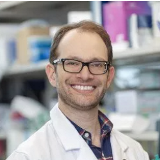
Biomedical engineer Daniel Heller is Head of the Cancer Nanotechnology Laboratory, which invents disruptive technologies to revolutionize the diagnosis and treatment of cancer and allied diseases. He received his PhD at the University of Illinois at Urbana-Champaign.
Lee H. Hilborne, MD, Professor, Pathology & Lab Medicine, University of California Los Angeles; Senior Medical Director, Quest Diagnostics
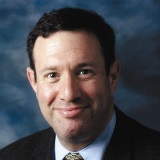
Lee H. Hilborne, MD, MPH is a professor of pathology and laboratory medicine at UCLA, senior health services researcher at RAND, and senior medical director in Medical Affairs at Quest Diagnostics. He has been a leader in medical quality and laboratory medicine for four decades, including serving as ASCP president in 2007. He is a member of ASCP’s Commissions on Membership and Public Policy and as ASCP’s advisor to the CPT Editorial Panel; he served as a member of the Panel for eight years. He was also the founding chair of the PLA Technical Advisory Group (PLA-TAG). Dr. Hilborne has given hundreds of invited presentations nationally and internationally and has well over 100 publications in peer-reviewed journals. Locally, Dr. Hilborne is a Health and Safety Commissioner for the City of Beverly Hills, having been a member of the Commission for four years.
Tyler Hinkle, Head of R&D Life Science Venting, Gore

Tyler Hinkle is the Technical Leader in the PharmBIO Life Sciences Venting (LSV) team at W.L. Gore & Associates (GORE). Tyler began his career with a BS in Biomedical Tissue Engineering and a Masters in Biomedical Engineering from Drexel University and went to work at GORE as a new product/technology development engineer in the Microelectronics industry. He then received his MBA in Strategic Management from Temple University and transitioned into the GORE PharmBIO Drug Delivery & Packaging Product Development and Commercialization team. After almost 15 years with Gore, Tyler joined LSV focused on providing unique and valued materials based technical solutions to solve difficult customer problems.
Zach Hochstetler, Director, CPT Editorial & Regulatory Services, American Medical Association

Zach Hochstetler is the Director of CPT Editorial and Regulatory Affairs in the American Medical Association’s Health Solutions unit. Zach’s work focuses on several key areas, including: leading and setting strategic direction for the CPT Editorial Panel and directing the communication of healthcare policies, through identification and resolution of national payment and reporting problems. He is also the Secretary of the CPT Editorial Panel, ensuring that the process remains open and transparent. Zach has over 10 years of experience working on physician payment and policy issues. He spent seven years working in the Physician Payment and Policy unit of the American Medical Association, primarily tasked with managing the data acquisition and maintenance processes for the AMA RUC.
Michaela R. Hoffmeyer, Director, Regulatory Affairs and Data Management, TE Medical Innovations

Michaela has 19 years of in vitro diagnostics development experience. As Director of Regulatory Affairs at TE IVD Solutions, Michaela supports all regulatory elements of IVD development, including design controls (ISO 13485, 21 CFR 820.30), regulatory strategy formulation, clinical study report creation, statistical analysis plans, analytical and clinical plan development (ISO 20916), FDA submissions (Q-submissions, EUA, 510(k), de novo, PMA, CLIA waived dual submissions etc.), USDA submissions, and CE mark under IVDR, Health Canada, and TGA. Previously, Michaela was a Senior Advisor with MRIGlobal, serving as Director of Regulatory for IVDs there and overseeing all regulated IVD programs for numerous commercial and government sponsors, including serving as PI for the NIH RADx program and CLIA laboratory clinical studies. Prior to MRIGlobal, Michaela led R&D at several well-known IVD organizations including Luminex and Abbott. Michaela holds a master’s degree in Cellular and Molecular Biology from University of Texas, Austin.
Kenneth C. Hohmeier, PharmD, Associate Professor, Director of Community Affairs, PGY-1 Community-Based Pharmacy Residency Program, The University of Tennessee Health Science Center

Kenneth C. Hohmeier, PharmD is an Associate Professor & Director of Community Affairs in the Department of Clinical Pharmacy and Translational Science at the University of Tennessee Health Science Center. Dr. Hohmeier has an extensive background in pharmacy practice and practice-based and implementation science research, including post-graduate residency training in community pharmacy, credentials in lean six sigma, implementation science, the Innovator’s DNA, and change leadership. He has successfully established and provided clinical pharmacist services within several community pharmacy settings in a wide variety of rural, suburban, and urban locations. His background also includes extensive leadership experience both in practice and within professional organizations, with past and current positions held at local, regional, and national levels including the American Pharmacists Association, Ohio Pharmacists Association, and Tennessee Public Health Association. His specific areas of research focus are in clinical service implementation in community pharmacy settings, medication therapy management (MTM), and innovative clinical pharmacy practice models. He has served as Primary Investigator (PI) or Co-PI on over 15 grant-funded projects advancing the role of the community pharmacist to increase patient care activities, such as vaccinations, MTM, and other clinical services.
Jody Hoyos, MHA, CEO, Prevent Cancer Foundation

Jody Hoyos, MHA is Chief Executive Officer of the Prevent Cancer Foundation, the only U.S.-based nonprofit organization solely dedicated to cancer prevention and early detection. Prior to joining the Foundation, Ms. Hoyos served as the Vice President of Membership and Operations at the Washington, D.C.-based Association of Women’s Health, Obstetric and Neonatal Nurses (AWHONN). With 25 years in the healthcare environment-including ten years in healthcare management consulting and 15 years in the nonprofit sector- Ms. Hoyos is a highly skilled executive leader. She previously held management consulting positions with Arthur Andersen, LLP as well as KPMG/Bearing Point. She has also worked as an associate at the Washington, D.C.-based Healthcare Advisory Board. Throughout her career, Ms. Hoyos has developed the teams and infrastructure to create numerous programs and partnerships dedicated to improving health. Ms. Hoyos earned a Bachelor of Business Administration degree from The George Washington University and a Masters in Healthcare Administration from the University of North Carolina at Chapel Hill.
Gavin H. Imperato, MD, PhD, Branch Chief, Division of Clinical Evaluation General Medicine, Office of Clinical Evaluation, Office of Therapeutic Products, FDA CBER

No bio available.
Joen T. Johansen, President & CEO, MDC Associates LLC

Joen is President and owner of MDC Associates, Inc. a full-service, regulatory affairs, quality assurance and clinical research (RA/QA/CRO) service provider to in vitro diagnostic (IVD) companies. Joen has 20 years of regulatory, clinical affairs, marketing, sales, business development and management experience in the IVD industry. Prior to MDC he was Head of Global Marketing for Accelerate Diagnostics, Inc. where he was responsible for strategic marketing, product management and clinical affairs. During his time in industry, Joen helped to define, develop and commercially launch more than 16 FDA cleared, CE-marked IVD products in the United States and Europe. Prior to joining the IVD industry Joen was a Healthcare Investment Banker with Lehman Brothers in London. Joen has degrees in Molecular Biology & Biochemistry and Economics from Wesleyan University.
Chris Johnson, JD, Director, Government Affairs, Myriad Genetics

Chris Johnson is an accomplished business leader with over a decade of experience in the healthcare and legal industries. Throughout his career, Chris has demonstrated a keen understanding of market dynamics and a passion for driving innovation to improve patient outcomes. Currently serving as Myriad Genetics' Director of Government Affairs, Chris oversees strategic state advocacy and policy execution. His previous roles span pharmaceutical distribution, provider trade associations, and legal positions, including regulatory counsel and appellate law clerk. Chris earned his Juris Doctor from the American University's Washington College of Law and holds a Bachelor of Arts in economics from the University of New Mexico. Committed to impactful policy change, he advocates for patients and providers, striving for healthier futures through effective advocacy.
Jonas JÜrgensen, MSc, Co-Founder, CEO, VenomAid

Jonas Arnold JÜrgensen is the CEO and Co-Founder of VenomAid Diagnostics, a company dedicated to enabling best-in-class snakebite management through affordable and rapid diagnostics. Holding a Master's in Molecular Biomedicine from the University of Copenhagen, with a specialization in antibody discovery and toxinology, Jonas has applied his expertise to address critical needs in venom research and diagnostic development. Having attracted substantial funding compared to the snakebite R&D landscape, VenomAid Diagnostics has emerged as a key player in pushing the agenda for rapid, affordable, and reliable snakebite diagnostics aimed at significantly improving patient outcomes for snakebite victims globally. In addition to VenomAid, Jonas is also a co-founder of Agrobiomics, and holds advisory board positions in Nucleate Denmark and Synapse - Life Science Connect, actively contributing to the Danish and Nordic Life Science Ecosystem.
Chris Karlovich, PhD, Associate Director, Molecular Characterization Laboratory, Frederick National Laboratory for Cancer Research

Chris Karlovich is Associate Director of the Molecular Characterization (MoCha) Laboratory at the Frederick National Laboratory for Cancer Research (FNLCR). The mission of MoCha is to develop genomic assays in support of research and clinical studies sponsored by the National Cancer Institute. In this capacity, MoCha has played a key role in several NCI precision medicine initiatives including NCI-MATCH, NCI-COG Pediatric MATCH and MPACT. Technologies either implemented or under validation at MoCha include whole exome sequencing, RNA-Seq, single cell genomics, and TSO500 ctDNA for liquid biopsies. Prior to coming to FNLCR Dr. Karlovich was at Clovis Oncology, where he provided scientific and operational oversight over molecular diagnostics and companion diagnostic development for rociletinib, a mutant-selective inhibitor of EGFR. Dr. Karlovich also spent nine years at Roche Molecular Diagnostics in biomarker discovery and in vitro diagnostic (IVD) test development.
Joan Kegerize, JD, Vice President, Reimbursement & Scientific Affairs, American Clinical Laboratory Association
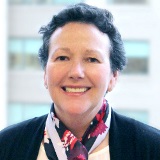
Joan Kegerize joined the American Clinical Laboratory Association (ACLA) in January 2019 as Vice President, Reimbursement and Scientific Affairs, working closely with ACLA members on coding, coverage, reimbursement, and health interoperability issues for laboratory and pathology services. She has a background in legal and reimbursement analysis most recently prior to ACLA at GMBI, where she worked with healthcare stakeholders across the industry on a range of coding, auditing and reimbursement issues for new and existing laboratory/pathology procedures. She also worked with clients to direct and implement reimbursement strategies for the Medicare and Medicaid programs as well as commercial/private payers. She began her career as a genetic counselor at Magee Women’s Hospital in Pittsburgh. She holds a Master of Science in Human Genetics from the University of Pittsburgh, and a Juris Doctor degree from New York Law School and is a licensed attorney in New Jersey. She holds certifications from the American Academy of Professional Coders as a Certified Professional Coder and a Certified Professional Medical Auditor.
Michael E. Klepser, PharmD, FCCP, FIDP, Professor, Ferris State University College of Pharmacy

Dr. Klepser received his Doctor of Pharmacy from the University of Michigan College of Pharmacy. Subsequently he completed a pharmacy practice residency at Detroit Receiving Hospital and University Health Center and a fellowship in Infectious Diseases at Hartford Hospital in Hartford, Connecticut. Dr. Klepser is currently a Professor of Pharmacy at Ferris State University since 2001. Dr. Klepser’s well-known for his work surrounding use of CLIA-waived point-of-care tests in community pharmacies and community-based antimicrobial stewardship. He has published extensively on these topics and has more than 130 peer-reviewed manuscripts to his credit. Dr. Klepser is a founder and content advisor for the “Community Pharmacy-Based Point-of-Care Testing” certificate program and Vice President of POC Consultants.
Donald G. Klepser, PhD, MBA, Professor and Senior Associate Dean for Academic Affairs, College of Pharmacy, University of Nebraska Medical Center

Donald Klepser is Professor of Pharmacy Practice and Science and Senior Associate Dean for Academic Affairs at the University of Nebraska Medical Center, College of Pharmacy. He has a PhD in Pharmaceutical Socioeconomics from the University of Iowa, an MBA from the University of Minnesota’s Carlson School of Management, and a Bachelor’s degree in Communications from the University of Michigan. He has studied the use of POC testing in community pharmacies for the past 13 years and is currently the primary investigator on grants to develop community pharmacy practice models for managing diseases such as COVID-19, RSV, HIV, HCV, influenza, and group A Streptococcus. He is also the primary investigator on grants to validate and implement point-of-care tests in pharmacy settings. As President of POC Consultants, Inc., Dr. Klepser has served as a consultant to both retail pharmacy chains and diagnostic testing companies.
Christopher J. Knickerbocker, Contracting Officer Representative, United States Department of Health and Human Services

Christopher is a Project Officer at the Biomedical Advanced Research and Development Authority (BARDA) at the U.S. Department of Health & Human Services (HHS). He began his career as a Forensic DNA Analyst where he analyzed biological evidence for both criminal and civil cases and testified as an expert witness. Christopher also worked in molecular and protein medical diagnostics where he spent over 15 years working in assay development, quality systems and manufacturing for applications related to infectious diseases, bioremediation, forensics, and biodefense. Christopher earned his B.S. in Biology from Sienna College in Loudonville, NY and his Master’s in Forensic Science with a concentration in Molecular Biology from the George Washington University in Washington, D.C.
Caitlin Kubler, MS, Senior Director, Policy and Advocacy, Prevent Cancer Foundation

Caitlin Kubler is the senior director of policy and advocacy of Prevent Cancer Foundation. Caitlin strengthens the Foundation’s efforts to prioritize funding for cancer research, reduce health care disparities and support legislation that improves access to health care, prevention and screenings. She builds relationships and unites cancer-focused organizations around the importance of prevention and early detection in accomplishing the joint mission of reducing cancer deaths. Caitlin brings to her work at the Foundation over 15 years’ experience in the health field. Caitlin holds a bachelor’s degree in health science management from George Mason University and a Master of Science degree in health and medical policy from George Mason University.
Nathan Ledeboer, PhD, Professor and Vice Chair, Pathology; Medical Director, Medical College of Wisconsin

Nathan A. Ledeboer, Ph.D., D(ABMM), F(AAM) received his Ph.D. Degree in Microbiology from the University of Iowa in 2005. Following two years of fellowship training in clinical and public health microbiology at Washington University School of Medicine in Saint Louis, MO, he joined the faculty of the Department of Pathology at the Medical College of Wisconsin in Milwaukee, WI. He is currently a Professor and Vice Chair of Pathology and Medical Director of Microbiology, Molecular Diagnostics, reference services, and laboratory client services at Froedtert Hospital and Wisconsin Diagnostic Laboratories in Milwaukee, WI. His research endeavors, particularly in the area developing diagnostic tools for infectious diseases, have led to numerous publications in peer-reviewed journals and more than 100 funded research projects. Dr. Ledeboer is also a senior editor for the Journal of Clinical Microbiology.
Grace Lee, Associate Vice President, CDx Global Regulatory Affairs, Agilent Technologies, Inc.

Grace Lee is a strategic regulatory leader focused on navigating the global challenges of companion diagnostic development. She serves as the AVP of CDx Global Regulatory Affairs at Agilent Technologies. Agilent is a life sciences and diagnostics company that has obtained CDx approvals in over 85 countries, including more than 20 CDx indications approved by US FDA. Agilent's CDx services include distributed kit development and single-site testing across a variety of technologies and tissue types. Outside of Agilent, Grace has also led regulatory teams at Foundation Medicine and Predicine. She enjoys collaborating with industry and regulators to improve access to CDx testing for patients around the world.
Richard M. Levenson, MD, Vice Chair for Strategic Technologies & Professor, Department of Pathology and Laboratory Medicine, University of California, Davis

Richard Levenson, MD, FCAP, has helped develop multispectral microscopy and small-animal imaging systems and software, birefringence microscopy, multiplexed ion-beam imaging (MIBI), and most recently, slide-free as well as enhanced-content microscopy approaches. He is section editor for Archives of Pathology and is on the editorial board of Lab. Invest. and AJP. Regrettably, he also taught pigeons histopathology and radiology. He is a recipient of the 2018 UC Davis Chancellor’s Innovator of the Year award and is a Fellow of SPIE.
Dun Liang, PhD, Executive Director, Regulatory Affairs, Companion Diagnostics, Loxo@Lilly
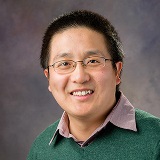
Dun Liang is an accomplished expert in diagnostics regulatory affairs and development, with extensive experience in both industry and government. He currently leads the CDx/Dx regulatory function team at Eli Lilly, overseeing its oncology development programs globally. Dun provides critical strategic and tactical guidance, interpretation, and assessment on CDx/Dx regulatory policies and strategies to support trial planning and decision making in major geographic areas. Prior to joining Loxo@Lilly, Dun worked as a lead reviewer at the FDA, where he organized and led regulatory reviews of molecular genetics and pathology devices for oncology. He also served as the subject matter expert on CDx/Dx for oncological drug reviews. Before his tenure at the FDA, he was a test developer and entrepreneur who developed, validated, and commercialized NGS LDTs. Dun earned his PhD from Florida State University and completed his postdoctoral training at the NIH. He is certified as a High-complexity Clinical Laboratory Director by the American Board of Bioanalysis (ABB).
Courtney H. Lias, PhD, Acting Director, OHT7: Office of in vitro Diagnostic Devices, United States Food and Drug Administration (FDA)

No bio available.
- SPECIAL FORUM: Point-of-Care Histology
- Advancing Novel Frameworks for Companion Diagnostics
- Early Cancer Surveillance
- Liquid Biopsy for Disease Management
- Advanced Diagnostics for Infectious Disease
- SPECIAL FORUM: Point-of-Care Product Strategies, Market Access, and Implementation
- SPECIAL FORUM: Regulatory Strategies for Point-of-Care Diagnostics
- Emerging Trends in Coverage and Reimbursement for Advanced Diagnostics
- Decentralized POC Testing
- Enabling Point-of-Care Diagnostics
Jimmy ChengHo Lin, PhD, CSO, Freenome, Inc.

C. Jimmy Lin, MD, PhD, MHS, is the the Chief Scientific Officer (CSO) at Freenome, working on early diagnosis of cancers. Previously, he was the CSO, Oncology at Natera (NASDAQ: NTRA), where he led the development of new diagnostic technologies for cancer. Dr. Lin is also a 2016 Senior TED Fellow and Founder & President of Rare Genomics Institute, the world's first platform to enable any community to leverage cutting-edge biotechnology to advance understanding of any rare disease. Previously, Dr. Lin led the ClinOmics program in the Genetics Branch of the National Cancer Institute (NIH/NCI). Prior to this, he led the computational analysis of the first ever exome sequencing studies of cancer at Johns Hopkins and was a research instructor at Washington University in St. Louis. He has numerous publications in Science, Nature, Cell, Nature Genetics, and Nature Biotechnology, and has been featured in Forbes, Bloomberg, Wall Street Journal, New York Times, Washington Post, BBC, TIME, and the Huffington Post.
Chermaen Lindberg, President, CovarsaDx Corporation

As President and CEO of CovarsaDx, Chermaen Lindberg stands at the helm of the company’s clinical research operations, combining a senior executive’s command of the strategic issues confronting companies with an intimate understanding of the day-today challenges facing them. Under her guidance, Chermaen leads her team of IVD study specialists in activities designed to help improve the services, quality, and pace of IVD and medica device clinical trials for sponsors under tight budgetary constraints, limited resources, and short timelines. Chermaen’s expertise stems from her work with medical device and diagnostics companies, including SafeSkin and Biosite and from her experience as a founding partner of At L3 Healthcare. During the pandemic, Chermaen and the CovarsaDx team completed numerous clinical studies and successfully brought 12 EUAs for SARS-CoV-2 and 1 Mpox EUA Sample collection kit to market.
Jonathan T.C. Liu, PhD, Professor, Mechanical Engineering, University of Washington

Jonathan T.C. Liu is a professor of mechanical engineering, bioengineering, and laboratory medicine & pathology at the University of Washington, where his Molecular Biophotonics Laboratory develops high-resolution optical-imaging devices and computational analysis strategies for guiding treatment decisions. Dr. Liu received his BSE from Princeton and his PhD from Stanford before becoming a postdoc and instructor in the Molecular Imaging Program at Stanford. Dr. Liu is a co-founder and board member of Alpenglow Biosciences Inc., which has commercialized the non-destructive 3D pathology technologies developed in his lab. Dr. Liu’s work is funded by the NIH, DoD, NSF, and various foundations.
Derek Maetzold, Founder, President, CEO, Castle Biosciences, Inc.

Derek J. Maetzold founded Castle Biosciences in September 2007 and has served as its President, Chief Executive Officer and as a member of its board of directors since inception. He has contributed to the discovery, development and commercialization of five diagnostic tests in cancers, has co-authored multiple scientific publications and is a co-inventor of a number of technologies at Castle Biosciences. Prior to founding Castle, Mr. Maetzold held leadership roles at Encysive Pharmaceuticals, Schering-Plough Corporation (now Merck), Integrated Communications, Amylin Pharmaceuticals and Sandoz Pharmaceuticals (now a division of Novartis). Mr. Maetzold currently serves as a director of PreludeDx™ and IMPACT Melanoma. Mr. Maetzold holds a B.S. degree in Biology from George Mason University and completed additional coursework at the University of Calgary Health Sciences Center and the MBA program at the University of California, Riverside.
Hannah Mamuszka, CEO & Founder, Alva10

Hannah Mamuszka is the CEO & Founder of Alva10, a consultancy that focuses on bringing diagnostics to the forefront of Precision Medicine by partnering with payers and diagnostic developers to create a new value-based healthcare model. Ms. Mamuszka has spent 20 years in biotech and diagnostics, with extensive experience in both drug and diagnostic development, validation, and commercialization. Prior to founding Alva10, Ms. Mamuszka was VP of Business Development at Exosome Diagnostics, where she led some of the earliest deals in the liquid biopsy diagnostic space. Earlier in her career, she was Global Director for Pharma Services at Exiqon A/S (now QIAGEN) and worked as a scientist on the NDA for Bortezmib (Velcade) at Millennium Pharmaceuticals (now Takeda). She regularly speaks on issues regarding advancement of technology in healthcare, is a Board of Directors for Bionano Genomics (BGNO) and writes a column on the value of diagnostics for the Journal of Precision Medicine.
Stuart S. Martin, PhD, Professor, Physiology, Marlene and Stewart Greenebaum NCI Comprehensive Cancer Center, University of Maryland School of Medicine
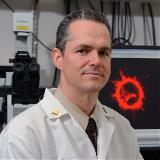
Dr. Martin is working to apply physical science and engineering approaches to study the mechanical properties of circulating tumor cells (CTCs), and discovered novel microtentacles on the surface of CTCs that promote metastasis. Dr. Martin received his Ph.D. from the University of California, San Diego, after training as a Howard Hughes undergraduate research fellow at the University of Virginia. Dr. Martin completed a Damon Runyon postdoctoral fellowship at Harvard Medical School that combined functional genomic studies with mouse models of breast tumor metastasis, under the mentorship of Dr. Phil Leder. Dr. Martin is currently the Drs. Angela and Harry Brodie Professor of Translational Cancer Research and co-leader of the Hormone-Related Cancers program at the Marlene and Stewart Greenebaum NCI Comprehensive Cancer Center (UMGCCC) at the University of Maryland School of Medicine.
Albine K. Martin, PhD, Executive-in-Residence, BioHealth Innovation; Entrepreneur-in-Residence, Johns Hopkins University

No bio available.
Sarah K. Martin, MS, PhD, Senior Director, Global Regulatory Policy, Eli Lilly and Company
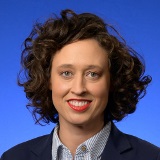
Sarah currently serves as senior director of global regulatory policy for oncology at Eli Lilly. She previously served as senior director of science and regulatory advocacy for the Pharmaceutical Research and Manufacturers of America (PhRMA) where she led their regulatory advocacy efforts on key issues including real-world evidence. Sarah worked for the American Association for Cancer Research (AACR) where she led their efforts to modernize the regulatory process and engage in the development and implementation of programmatic and policy initiatives with the US FDA Oncology Center of Excellence.
Mark Massaro, Managing Director & Senior Equity Research Analyst, BTIG LLC

Mark Massaro is a Managing Director and Analyst providing research coverage of the Life Science and Diagnostic Tools sector for BTIG, a global mid-market investment banking firm. Prior to joining BTIG, he served as the Chief Financial Officer at ArcherDX, Inc., an oncology diagnostics and pharmaceutical services company, which was acquired by Invitae Corporation. Previously, Mr. Massaro was a Managing Director and Senior Equity Research Analyst within Diagnostics and Life Science Tools at Canaccord Genuity, where he spent more than eight years focused on high-growth, precision medicine and next-generation sequencing companies, as well as molecular and point-of-care diagnostics, reference labs, and animal health. He was named a “Rising Star” in Institutional Investor’s All America Survey for life science and diagnostics tools in October 2016. Earlier in his career, Mr. Massaro was an Associate Equity Analyst within Healthcare Services at Avondale Partners and held corporate finance and financial reporting roles at Dell EMC and Fidelity Investments. He earned an MBA from Babson College and a BA in economics and Spanish from the University of Massachusetts - Amherst.
Dawn Mattoon, PhD, CEO, Mercy BioAnalytics

Dr. Dawn Mattoon is the Chief Executive Officer at Mercy BioAnalytics. She brings 20 years of experience in the biotechnology industry. She has held leadership positions in R&D, Strategy, and General Management for leading companies including Invitrogen, Life Technologies, Thermo Fisher, and Cell Signaling Technology. Before joining Mercy, Dr. Mattoon served as the Senior Vice President for Clinical Diagnostics at Quanterix, where she led the development and commercialization of the company’s first two FDA-authorized diagnostic tests for COVID-19 and received Breakthrough Device designations from the FDA for diagnostic tests in Alzheimer’s Disease and Multiple Sclerosis. Dr. Mattoon completed her Ph.D. and postdoctoral fellowship at Yale University with a focus on mechanisms of cell signaling in cancer.
Nicole Miller, PhD, Vice President, Molecular Diagnostics, Ultragenyx Pharmaceutical, Inc.
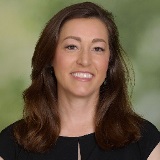
Nicole Miller, PhD is the Vice President of Molecular Diagnostics at Ultragenyx, a company founded and led by Emil Kakkis that develops therapies for rare and ultrarare genetic diseases. She focuses on advancing biochemical and genetic testing in support of reducing the diagnostic odyssey for rare disease patients. She has partnered to develop and launch ten gene locus specific databases and published several variant reviews for rare genetic disorders. Prior to Ultragenyx, Nicole developed and led the Scientific Affairs function at BioMarin for about 9 years, focusing on rare disease patient diagnosis. Since 2010, Nicole has worked closely with the newborn screening research community in support of advancing newborn screening for rare disease. Prior to working in the rare disease field, she led a molecular pharmacology research team at Exelixis and led a biomarker program there for about a decade supporting research through clinical development. Nicole has a bachelor’s degree in genetics from U.C. Davis and a PhD in oncology from U.W. Madison. Her postdoc was in biochemistry at UCSF with Erin O’Shea. She sits on the board of the Professional Science Master’s program at the University of San Francisco since the program’s inception.
Norman Moore, PhD, Volwiler Senior Associate Research Fellow, Director, Infectious Diseases, Scientific Affairs, Abbott

Dr. Moore received his Bachelor's Degree from Dartmouth and his PhD in microbiology from the University of New Hampshire. He has eight US and 39 non US patents in the field of infectious disease diagnostics along with numerous publications and presentations. He has sat on medical committees such as the point-of-care groups for the College of American Pathology and the Clinical Laboratory Standards Institute and helps write guidelines/best practices for additional groups. At this time, he is the global director of scientific affairs for the Rapid Diagnostic division of Abbott Laboratories. He received the Volwiler Fellowship Award for lifetime achievement in science in 2019
Jeanne Mumford, MT(ASCP), Manager, Point-of-Care Testing, Johns Hopkins Hospital
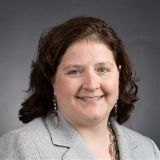
Jeanne Mumford is the Pathology Manager for Point-of-Care Testing (POCT) for Johns Hopkins Medicine. She obtained a BS in Medical Technology in 2000. Jeanne offers years of experience in Point-of-Care testing-related regulatory oversight, quality assurance projects, and laboratory inspection preparedness and planning. She participates in many professional organizations including the Critical and Point-of-Care Testing Division of AACC and the CLSI Expert Panel for Point-of-Care Testing. Jeanne is the president of KEYPOCC, the Point-of-Care coordinators group and actively speaks about laboratory management as well as a variety of POCT-specific topics. She consults with vendors on product development and instrument connectivity and advocates for networking activities in our Point-of-Care Communities. She has served on the Board of Directors for COLA Resources, Inc. and serves her community at home through her philanthropic endeavors with the United Way of Central Maryland.
James Nichols, PhD, DABCC, FADLM, Professor of Pathology, Microbiology, and Immunology; Medical Director, Clinical Chemistry and POCT, Vanderbilt University School of Medicine

James H. Nichols, PhD, DABCC, FACB is a Professor of Pathology, Microbiology, and Immunology, Medical Director of Clinical Chemistry and Point-of-Care Testing at the Vanderbilt University Medical Center. Dr. Nichols received his BA in General Biology/Premedicine from Revelle College, University of California at San Diego. He went on to complete a Master’s and Doctorate in Biochemistry from the University of Illinois, Urbana-Champaign. Jim was a fellow in the Postdoctoral Training Program in Clinical Chemistry at the Mayo Clinic, Rochester, MN. He is board certified in both Clinical Chemistry and Toxicological Chemistry by the American Board of Clinical Chemistry. Dr. Nichols spent several years as Associate Director of Clinical Chemistry, Director of Point-of-Care Testing, and an Associate Professor of Pathology at Johns Hopkins Medical Institutions. Jim later served as Medical Director of Clinical Chemistry for Baystate Health in Springfield, MA and was a Professor of Pathology at Tufts University School of Medicine. Dr. Nichols’ research interests span evidence-based medicine, information management, laboratory automation, point-of-care testing and toxicology.
Maja H. Oktay, PhD, Professor of Pathology, L.G. Koss Division of Cytology, Montefiore Einstein Comprehensive Cancer Center

Maja Oktay, MD/Ph.D., is a physician-scientist. She is a board-certified anatomical pathologist and cytopathologist with a Ph.D. and post-doctoral training in cancer cell biology and cell signaling pathways. Her major interests are in cancer cell biology, the biology of breast cancer progression and metastasis, the effect of chemotherapy and endocrine therapy on the tumor microenvironment, racial disparity in cancer, as well as development of prognostic and predictive molecular biomarkers. Her work is based on the analysis of the cancer microenvironment using mouse models of cancer, intravital multiphoton imaging, and digital pathology as well as minimally invasive procedures for diagnosis and prognosis of human malignancies, such as fine-needle aspiration (FNA) biopsy. Dr. Oktay is a translational (bench to bedside) researcher in Einstein’s Integrated Imaging Program where basic science findings are applied to clinical care through the integration and validation of high-resolution optical imaging with currently used clinical imaging methods. Dr. Oktay established New York Pathology Oncology Group (NYPOG) and is the current director of NYPOG
May Orfali, MD, CMO, Harbinger Health

Dr. May Orfali is a transformative medical executive with over 25 years of extensive expertise in clinical drug development, medical affairs, and regulatory strategy in multiple therapeutic areas, with a focus on rare diseases, gene therapy, CAR T, oncology, hematology, immunology, infectious disease, women’s health, and diagnostics. Currently, she is a CMO of Harbinger Health, President of Rare Disease & Oncology Consulting, LLC, and clinical advisor at Bioasis. Prior to that, she served as CMO at Sigilon Therapeutics, CaNBtridge, and led clinical development of oncology and rare diseases at Pfizer, thromboembolic disorders at Artisan Pharma, pulmonology at Aeris Therapeutics, anti-infectives at Cubist and women’s health at Boston Scientific. Dr. Orfali holds a medical degree from the University of Baghdad, Baghdad, Iraq, and a Pharmaceutical Master of Business Administration from Cambridge University, Cambridge, England. She completed her Fellowship in Pediatric Oncology/Hematology at Massachusetts General Hospital and Children’s Hospital, Boston, MA, and conducted clinical research in medical oncology at Dana Farber Cancer Research Institute.
Vihanga Pahalawatta, PhD, Director, Regulatory Affairs Device and Combination Products, AbbVie, Inc.

Vihanga Pahalawatta has over 10 years of industry experience related to In Vitro Diagnostic (IVD) products and companion diagnostics in Research and Development and Regulatory Affairs. Vihanga currently provides support for companion diagnostics programs at various stages of development covering global regulatory requirements for clinical studies and registration at AbbVie. Her regulatory experience also includes on-market product support, managing advertising and promotional material, and global registrations for IVDs. Prior to joining AbbVie Vihanga led the global regulatory team at Abbott Molecular Inc. Vihanga has a Bachelor’s degree from the University of Peradeniya in Sri Lanka and a Master’s and PhD from Washington State University.
Jai Pandey, PhD, Head, Global Device Regulatory IVD/CDx and Digital Health, Sanofi

Jai Pandey currently serves as Director of Global Regulatory Strategy IVD at Bayer. Prior to joining Bayer, he worked as a Regulatory Lead at GSK for strategic and innovative precision medicine and digital health approaches. From 2017-2020, Jai was a lead IVD device reviewer at FDA/CDRH. Jai did his postdoctoral training at the Whitehead Institute of MIT. He holds a PhD in Cellular and Molecular Biology from University of South Carolina.
Christos Patriotis, PhD, Program Director, Cancer Biomarkers Research Group, NIH NCI
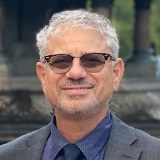
Dr. Christos Patriotis, Program Officer, Cancer Biomarkers Research Group (CBRG), Division of Cancer Prevention, National Cancer Institute. He obtained his M.Sc. in Biochemistry from the University of Sofia, Bulgaria, and his Ph.D. in Molecular Biology from the Bulgarian Academy of Sciences. His postdoctoral training focused on T-cell receptor and Toll-like receptor signaling in lymphoid-cell activation in adaptive and innate immune response, as well as on epithelial cancer-cell biology. He joined the faculty at Fox Chase Cancer Center in 1994, where his research focused on understanding the mechanisms of breast and ovarian cancer pathogenesis and the identification of biomarkers for their early detection. He developed and characterized animal models of breast and ovarian cancers and conducted transcriptomic and mutational analyses of human and animal-model specimens for the discovery of biomarkers for breast and ovarian cancers. He joined CBRG in 2007, where he has been leading the management and coordination of key programs focused on the development of biomarkers for early detection of breast, ovarian and other gynecological cancers, the development of biomarkers to reduce the overdiagnosis of indolent cancers, the development of liquid biopsy technologies for early cancer assessment, and the development of bioinformatics tools and statistical models supporting cancer biomarker research.
Samantha Pettersen, MPH, Senior Policy Analyst, Policy and Advocacy, Association for Molecular Pathology

Samantha Pettersen, a Senior Policy Analyst at the Association for Molecular Pathology, specializes in healthcare reimbursement. With a B.S. from Michigan State University and an M.P.H. from the University of Pittsburgh, she navigates Clinical Laboratory Fee Schedule coding and pricing, and shapes Public and Private Payer coverage policies. Samantha's expertise lies at the nexus of policy and molecular pathology, where she advocates for equitable access to advanced diagnostics.
Giulia Pilla, PhD, Clinical Lead, Nostics

Dr. Pilla is currently the Clinical Lead at Nostics, a Dutch company developing point-of-care, rapid and cost-effective diagnostic solutions to infectious diseases. In this role, she is helping the company define its clinical strategy and shape its product portfolio to ultimately make a big impact in de-centralized healthcare settings. Dr. Pilla holds a PhD in Molecular Microbiology from University of Oxford with almost 10 years of research experience in antimicrobial resistant pathogenic bacteria. During her time at Oxford, she has been involved in several projects including the development of a novel sequence typing method and a microfluidics-based technology for identification of multidrug resistant pathogen which led to her selection as Young Innovator 2022.
Benjamin Pontefract, PharmD, BCPS, Director of Research, CHARM; Assistant Professor, College of Pharmacy, Ferris State University

Dr. Benjamin Pontefract, PharmD, BCPS completed his Doctorate of Pharmacy at the University of Toledo. Subsequently, he completed a first year Ambulatory Care Residency program at MetroHealth Medical Center before completing an Antimicrobial Stewardship Fellowship at the Boise VA Medical Center. Currently, Dr. Pontefract works as an Assistant Professor at the Ferris State University College of Pharmacy where he has taught and engaged in research focused on Infectious Diseases since 2019. Dr. Pontefract also maintains a clinical practice as an Internal Medicine Pharmacist at Corewell Blodgett Medical Center. Dr. Pontefract also serves as the Director of Research for the Collaboration to Harmonize AntiMicrobial Registry Measures (CHARM) Project and as President for the Western Michigan Society of Health-System Pharmacists (WMSHP).
Gary W. Procop, MD, CEO, Professor of Pathology, American Board of Pathology

Gary W. Procop, MD, MS is the Vice Chair for Pathology Education and the Director of Molecular Microbiology, Virology, Mycology and Parasitology Laboratories at the Cleveland Clinic. He is past Chair of the Departments of Clinical Pathology and Molecular Pathology, a past Section Head for Clinical and Molecular Microbiology, and the former Medical Director and Co-Chair of the Enterprise Laboratory Stewardship Committee for Enterprise Medical Operations. He will assume the role of CEO of American Board of Pathology on January 1, 2022. Dr. Procop completed a Bachelor of Science at Eastern Michigan University, followed by an M.D. and M.S. at Marshall University School of Medicine. Residency training in Anatomic and Clinical Pathology training was completed at Duke University Medical Center and a Clinical Microbiology Fellowship at the Mayo Clinic. He is a diplomat of the American Board of Pathology in Anatomic and Clinical Pathology, and Medical Microbiology. He is a Fellow of the American Academy of Microbiology, the College of American Pathologists, the American Society for Clinical Pathology, the Infectious Diseases Society of America, and the Royal Society of Tropical Medicine and Hygiene. He has given more than 691 scientific presentations, and has 234 published manuscripts, 51 chapters, and three books to his credit. He is a member of the Board of Directors of the American Society for Clinical Pathology, the Chair of the Commission on Science, Technology and Policy, and a Member of the Effective Test Utilization Subcommittee of this Commission. He is the former Chair of the Committee on Continuing Certification (3C), member of the Accountability & Resolution Committee, and a Member of the Board of Directors of the American Board of Medical Specialties. He is a former Chair of the Microbiology Test Development Committee, a Past President, former Trustee and is currently an ex officio of the American Board of Pathology. He is Member of the Board of Directors and the Chair of the Antifungal Subcommittee of the Clinical Laboratory Standards Institute. He is also a former Member of the Council on Scientific Affairs, former Chair of the Microbiology Resource Committee and is a current member of the Quality Practices Committee for the College of American Pathologists. He has served as a Member of the NGS Coalition and Conferences Committee for the American Society for Microbiology. Major recognitions include the ASM BD Award for Research in Clinical Microbiology, the CAP Distinguished Patient Care Award, the Cleveland Clinic John Beach Hazard Teaching Award, the ASCP Mastership Designation, Case Western Reserve University School of Medicine Scholarship in Teaching Award, and the Belinda Yen-Lieberman, PhD, and James M. Lieberman, MD, Endowed Chair in Clinical Microbiology. His primary interests are developing and promoting best practices in laboratory testing, the practical applications of molecular diagnostic methods for the diagnosis and treatment of infections; infectious disease pathology; mycology and parasitology. He is currently working on a Masters of Education in Health Professions through Johns Hopkins University
Girish Putcha, MD, PhD, Principal & Founder, Precision Medicine & Diagnostics

Girish holds an MD and a PhD in molecular neuroscience from Washington University in St. Louis, with specialty training in clinical and molecular genetic pathology at Stanford University. He previously served as Chief Medical Officer, Senior Vice President of Reimbursement, and Clinical Laboratory Director at Freenome and as a member of CMS’ Medicare Evidence Development & Coverage Advisory Committee (MEDCAC). Prior to that, as Director of Laboratory Science for Palmetto GBA’s MolDX program, Girish helped oversee coverage and reimbursement for molecular testing for its jurisdictions, representing over half of the Medicare population. He has also held senior leadership roles, including founding Laboratory Director and Chief Medical Officer, at Ariosa Diagnostics, Crescendo Bioscience, Life Technologies, and VitaPath Genetics. Prior to this, he focused on life science investments in biopharmaceuticals, medical devices, diagnostics and services at Panorama Capital and RiverVest Venture Partners, serving on the boards of several portfolio companies, including Presidio Pharmaceuticals, PowerVision, and Phenomix.
- SPECIAL FORUM: Point-of-Care Histology
- Advancing Novel Frameworks for Companion Diagnostics
- Early Cancer Surveillance
- Liquid Biopsy for Disease Management
- Advanced Diagnostics for Infectious Disease
- SPECIAL FORUM: Point-of-Care Product Strategies, Market Access, and Implementation
- SPECIAL FORUM: Regulatory Strategies for Point-of-Care Diagnostics
- Emerging Trends in Coverage and Reimbursement for Advanced Diagnostics
- Decentralized POC Testing
- Enabling Point-of-Care Diagnostics
Bruce Quinn, MD, PhD, Principal, Bruce Quinn Associates, LLC

Bruce Quinn, MD, PhD, is a professional strategy consultant helping innovative companies achieve their goals under U.S. federal health policies. His consulting practice, with offices in Los Angeles and San Francisco, works with leading genomic, medical technology, and biopharma companies. Originally trained as a neuropathologist, earlier in his career he held tenure-track faculty positions at NYU Medical School and the Northwestern University School of Medicine. As a physician executive, he has held positions with Accenture’s healthcare strategies practice, the Medicare program, and with health policy groups in two law and lobbying firms. Recent publications have included articles on defining clinical utility for diagnostic tests and a review of the emerging digital genomics industry. In addition, his blog, www.DiscoveriesInHealthPolicy.com, covers innovative health care policy developments and receives over 100,000 hits per year. The website for Dr. Quinn’s firm is www.brucequinn.com.
Elissa Quinn, Medical Director, Cancer Screening & Early Detection, AstraZeneca

Elissa leads cancer screening and early detection evidence development within U.S. Medical Affairs at AstraZeneca. With more than 20 years of industry experience in the field of oncology diagnostics, she works in partnership with leaders across the precision medicine ecosystem to identify patient access barriers and develop real-world solutions to enable equitable, timely and accurate diagnosis. Driven by a personal mission to make an impact in the lives of people fighting cancer, Elissa developed and led programs addressing challenges to clinical guideline adherence, health system integration, and genomically guided care. Elissa is now working to improve earlier detection of cancer where patients may begin to fully realize the true promise of early intervention and personalized care.
Gail Radcliffe, PhD, President, Radcliffe Consulting, Inc.
.tmb-0.jpg)
Gail E. Radcliffe, PhD has more than 20 years of experience assisting medical device and diagnostics companies with technical assessment and clinical/regulatory issues. Gail founded Radcliffe Consulting in 1998 after having worked at GENE-TRAK, where she developed IVD assays for several infectious disease organisms including HIV, CMV, TB, and Chlamydia, and was responsible for instituting the clinical affairs group. She later joined Cytyc Corporation, where she identified novel applications for the ThinPrep Processor and helped forge partnerships with other healthcare companies to expand product offerings. As a consultant, Gail has provided assistance to start-up and established medical device companies with regulatory strategy (IVD vs. CLIA lab) and submissions, quality systems development, and clinical trial support. Consulting engagements have encompassed a wide range of products including cutting-edge digital pathology instruments, stem cell laser dissection devices, companion diagnostics, and multiplex molecular, NGS, POC, and CLIA Waived in vitro diagnostic devices. She has been working around the clock for the past 2 years with manufacturers and laboratories developing SARS-COV-2 diagnostic products as a regulatory consultant with the RADx program. This program is an NIH-funded initiative for the Rapid Acceleration of Diagnostic Products to get everyone back to school and work. Gail obtained a PhD in Molecular Biology from Brown University and completed a post-doctoral fellowship in molecular immunology at the University of Massachusetts Medical School. She is a member of the Regulatory Affairs Professional Society (RAPS), American Society of Microbiology (ASM), and Sigma Xi. She is on the Board of Trustees of the Massachusetts Biomedical Initiatives and acts as an advisor to venture capital companies.
Milind Rajadhyaksha, PhD, Member of Faculty, Department of Medicine, Dermatology Service, Memorial Sloan Kettering Cancer Center

Dr. Milind Rajadhyaksha develops confocal microscopes for imaging-guided noninvasive diagnosis of skin and oral cancers. His work spans the entire spectrum from bench to bedside: laboratory research through commercialization through clinical studies to clinical implementation, and he enjoys working in the "valley of death"-and living through frequent near-death experiences-between laboratory and clinic and between academia and industry. Two of his microscopes have been commercialized (VivaScopes), translated through clinical trials, and are now in routine clinical use to noninvasively guide diagnosis and treatment of skin cancers. A third microscope is currently in development and commercialization for diagnosis of oral cancers.
Lakshman Ramamurthy, PhD, Vice President Regulatory Affairs, GRAIL

Lakshman Ramamurthy PhD is the Head of Global Regulatory, Precision Medicine & Digital Health at GlaxoSmithKline Inc. He manages a team responsible for diagnostic and digital regulatory strategy working closely with clinical development teams in GSK and diagnostic partners externally. Previously he was Global Regulatory Lead at Foundation Medicine Inc prior to which he worked for over five years at the US FDA’s Center for Devices and Radiological Health (Office of In Vitro Diagnostics) as Senior Reviewer, Associate Director and later as Policy Advisor to the Commissioner of US FDA. He led the FDA CMS Parallel Review pilot project in CDRH. At the FDA he also served in the Office of Legislation in the Office of Commissioner on legislative imperatives pertaining to device law. He has nearly two decades in biotech and pharmaceutical industry in areas of genomics, bioinformatics, and diagnostics. He was also a member of the CMS Medicare Evidence Development and Coverage Advisory Committee. He has served as an advisor to FDA as part of the Entrepreneur-in-Residence program. He has a PhD in Molecular Biology from the University of North Carolina at Chapel Hill and has co-authored over 20 publications and is a frequent speaker at international conferences on regulation of diagnostics and devices.
Vanessa Rangel Miller, Senior Director, Molecular Diagnostics, Ultragenyx Pharmaceutical, Inc.

Vanessa Rangel Miller, MS MBA is Senior Director of Molecular Diagnostics Programs within Global Medical Affairs at Ultragenyx Pharmaceutical Inc. She was previously at Invitae, where she worked in Biopharma/Advocacy Business Development, after leading the Patient Insights Network (patient registry) programs. Prior to Invitae, she co-founded PatientCrossroads (d.b.a. AltaVoice), where she brought together genetics, technology, and partners in forming patient registries. As a certified genetic counselor, Vanessa has previously worked for Emory University as a laboratory and clinical genetic counselor. She currently serves on the Board of the Cure GM1 Foundation.
Rebecca R. Richards-Kortum, PhD, Professor of Bioengineering, Malcolm Gillis University; Director, Rice 360° Institute for Global Health; Founder, Beyond Traditional Borders Undergraduate Global Health Program

Guided by the belief that all of the world’s people deserve access to health innovation, Professor Rebecca Richards-Kortum’s research and teaching focus on developing low-cost, high-performance technology for low-resource settings. She is known for providing vulnerable populations in the developing world access to life-saving health technology, focusing on diseases and conditions that cause high morbidity and mortality, such as cervical and oral cancer, premature birth, and malaria. Richards-Kortum is also leading a multi-institutional team to develop a package of 17 life-saving neonatal technologies, designed for low-resource settings while providing the same efficacy a related technologies used in North America, but at a fraction of the cost Current technologies are being tested and applied through multidisciplinary collaborations with clinicians and researchers at Rice, the UT M.D. Anderson Cancer Center, Baylor College of Medicine, UT Health Science Center-Houston, the British Columbia Cancer Agency. Over the past few years, Richards-Kortum and collaborators have translated these technologies from North America to both low- and medium-resource developing countries (Malawi, China, Botswana, El Salvador, and Brazil). Richards-Kortum’s research has led to the development of 40 patents and more than 310 refereed research papers. Her teaching programs, research and collaborations have been supported by generous grants from the National Cancer Institute, National Institutes of Health, National Science Foundation, U.S. Department of Defense, Howard Hughes Medical Institute, the Bill & Melinda Gates Foundation, the Lemelson Foundation, USAID, Whitaker Foundation, and the Virginia and L.E. Simmons Family Foundation. Richards-Kortum is a member of the US National Academy of Sciences, the National Academy of Engineering, and the Academy of Arts and Sciences. In 2016, she received the highest honor from The American Institute for Medical and Biomedical Engineering (AIMBE), the Pierre Galletti Award. She was named a Howard Hughes Medical Institute Professor in 2002 and 2006. Together with Maria Oden, she received the Lemelson-MIT Award for Global Innovation in 2014. She received a B.S. in Physics and Mathematics from the University of Nebraska, a M.S. in Physics from the Massachusetts Institute of Technology, and a Ph.D. in Medical Physics from the Massachusetts Institute of Technology.
Peggy Robinson, CEO, Caza Health LLC

Peggy Robinson is CEO at Caza Health LLC, an Axon Connected company focused on providing better diagnostics for women’s health. Prior to joining Axon Connected, Peggy was the US Vice President for ANGLE, plc, a world-leading liquid biopsy company with pioneering products in cancer diagnostics and fetal health. At ANGLE, Peggy led the commercialization of products in North America as well as built global KOL relationships and drove strategic alliances. As an accomplished Senior Marketing Executive with over 20 years of experience in diagnostic global marketing, Peggy has served in various marketing, marketing communications, market development, strategic alliances, consulting, sales, and technical service roles in diagnostics, molecular, life sciences, and CROs with such companies as Chiron, Bayer Diagnostics, Covance, EMD Millipore, BioMark Consulting, LLC, Immunicon, and Janssen Dx, a Johnson and Johnson company. She has launched various product lines domestically and internationally and has managed the associated international partnerships in the development of new products. Additionally, she has worked in developing collaborations with major pharmaceutical/biotech companies to market research use only products, early in their lifecycle. Peggy earned a BS in Biology/Medical Technology at Millersville University and is a registered Medical Technologist. Peggy was the President of the Diagnostics Marketing Association and awarded the Jerry R. Goldsmith Award for marketing excellence, by leaders in the industry.
Francisco (Paco) Robles, PhD, Associate Professor, Chair of Graduate Admissions and Recruiting, Wallace H. Coulter Department of Biomedical Engineering, Georgia Institute of Technology & Emory University
-jpg_0734d1d7-306e-4baf-85af-d70097d62fe2_5d7ca061-5613-4c04-8e23-4feb0ad52cf9.tmb-0.jpg)
Dr. Robles received his PhD in Medical Physics from Duke University, where he also completed his postdoctoral training. Dr. Robles' lab focuses on developing and applying label-free imaging and spectroscopic methods to gain access to novel forms of functional and molecular contrast for a variety of biomedical applications.
Kyle Rodino, PhD, D(ABMM), Assistant Professor, Pathology and Laboratory Medicine, Perelman School of Medicine, University of Pennsylvania; Assistant Director, Clinical Microbiology Laboratory; Director, Rittenhouse Molecular Laboratory, Hospital of the University of Pennsylvania

Dr. Rodino is the Assistant Director of the Clinical Microbiology Laboratory and Director of the Rittenhouse Molecular Laboratory (an infectious diseases molecular lab) at the Hospital of the University of Pennsylvania and Assistant Professor at the Perelman School of Medicine. Prior to receiving his PhD in Microbiology and Immunology from the Virginia Commonwealth University School of Medicine, he was a medical technologist in the clinical microbiology laboratory at the University of North Carolina at Chapel Hill. Dr. Rodino completed an ASM CPEP fellowship in Clinical Microbiology at Mayo Clinic. His interests include the development, implementation, and clinical utility of advanced molecular diagnostics, including sequencing-based assays, as well as vector-borne diseases and ocular infections. Dr. Rodino was Co-PI of the Penn Medicine SCV2 sequencing program, providing viral surveillance for the Philadelphia region. Current efforts include optimizing the use of NGS-based assay, expanding the in-house capacity for tick-borne disease diagnostics, and building the infrastructure to support WGS-based infection prevention for Penn Medicine.
Reynolds M. Salerno, PhD, Director, Lab Systems & CSELS, Center for Disease Control & Prevention

Ren Salerno is the Acting Director of the Center for Laboratory Systems and Response at the US Centers for Disease Control and Prevention (CDC). He is the lead CDC official for the federal tri-agency Clinical Laboratory Improvement Amendments (CLIA) program, and the Designated Federal Official of the US Clinical Laboratory Improvement Advisory Committee (CLIAC). Dr. Salerno is CDC’s point of contact with FDA’s Office of In Vitro Diagnostics and Radiological Health, and CMS’ Division of Clinical Laboratory Improvement and Quality. He is responsible for CDC’s Memorandum of Understanding on Surge Testing during Public Health Emergencies. He represents CDC on the HHS Testing Coordination Group, the Tri-Agency Task Force for Emergency Diagnostics, and the Federal Interagency Working Group on Improving Diagnostic Safety and Quality in Healthcare. He has served as lead of CDC’s Expansion of Screening and Diagnostics Task Force for the COVID-19 Response, co-lead of CDC’s Laboratory and Testing Task Force for the COVID-19 Response, and senior advisor for laboratory and testing for CDC’s Monkeypox response.
Anna Scrimenti, Associate Director, Public Policy & Advocacy, Association for Molecular Pathology
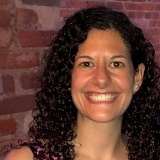
Anna currently serves as the Associate Director of Public Policy and Advocacy at the Association for Molecular Pathology (AMP). She leads AMP’s advocacy department and is the main staff liaison to both the Professional Relations Committee and Economic Affairs Committee. AMP advocacy focuses on reimbursement and regulatory issues affecting molecular pathology, including regulation of laboratory-developed testing procedures, protecting gene patent laws as well as coding, coverage, and payment policy. Annie has over a decade of policy experience and holds an M.S. in Biomedical Science Policy, with a focus on infectious diseases from Georgetown University and a B.A. in Liberal Arts/Pre-Medical Studies from Gannon University. She enjoys interfacing with government agencies and Congress to provide sound science policy recommendations. Her portfolio includes, but is not limited to: Science Policy, Public Health, Higher Education, Housing, Finance, Veterans Affairs, Food Safety, Native American Affairs, Healthcare, and Public Policy.
- SPECIAL FORUM: Point-of-Care Histology
- Advancing Novel Frameworks for Companion Diagnostics
- Early Cancer Surveillance
- Liquid Biopsy for Disease Management
- Advanced Diagnostics for Infectious Disease
- SPECIAL FORUM: Point-of-Care Product Strategies, Market Access, and Implementation
- SPECIAL FORUM: Regulatory Strategies for Point-of-Care Diagnostics
- Emerging Trends in Coverage and Reimbursement for Advanced Diagnostics
- Decentralized POC Testing
- Enabling Point-of-Care Diagnostics
Charudutt Shah, Chief Business Officer, Genomtec

Charudutt Shah is the Director of Marketing for BioFire products at bioMérieux S.A. based in corporate headquarters in Lyon, France since May 2016. Charudutt is responsible for commercial marketing in Europe, Middle East and Africa (EMEA). In his role, he oversees the launch of new syndromic infectious disease panels and instruments that rapidly identify pathogens. A major focus of his efforts is in developing go-to-market strategies, driving clinician awareness, market access, and bringing innovative testing solutions to various healthcare ecosystems to improve patient care. He has spent over a decade in commercial roles within the Diagnostic Industry developing marketing strategies, creating distribution partnerships, addressing customer requirements, leading product innovation, and introducing new products to the market. Charudutt is a graduate of the University of Toronto and holds both a Bachelor’s of Applied Science and Engineering degree as well as a Master’s of Biotechnology and Management degree. He is an active member of the Association for Molecular Pathology (AMP) and the European Society of Clinical Microbiology and Infectious Diseases (ESCMID).
Kate A. Simon, PhD, Senior Director, Global Regulatory Strategy IVD, Bayer

Kate Simon is a Senior Director, Global Regulatory Leader for Bayer Pharmaceutical’s Oncology Unit. She joined Bayer in July 2023 with over 20 years of experience in IVD and companion diagnostic (CDx) regulatory affairs. Before joining Bayer, she was a Director, Global Regulatory Affairs, IVD at GSK where she supported multiple global CDx development efforts. Kate has also worked at QIAGEN where she led companion diagnostic regulatory strategy from the diagnostic perspective. Prior to joining industry, she worked 11 years in the Office of In Vitro Diagnostics at FDA/CDRH during which time she served as a Master Reviewer and an instructor to industry on premarket IVD submissions. Kate earned her PhD in Microbiology from the University of Virginia through her research in viral oncology and cell signaling.
Steven A. Soper, PhD, Professor & Director, CBM2 Precision Medicine, Chemistry & Mechanical Engineering, University of Kansas, Lawrence

Prof. Soper (since 2016) is a Foundation Distinguished Professor in Chemistry and Mechanical Engineering at the University of Kansas. At KUMC, Prof. Soper holds an adjunct appointment in the Cancer Biology Department and is a member of the KU Cancer Center. He also holds an appointment at Ulsan National Institute of Science and Technology in Ulsan, South Korea, where he is a World Class University Professor. As a result of his efforts, Prof. Soper has secured extramural funding totaling >$105M, has published over 245 peer-reviewed manuscripts (h index = 67; 16,188 citations); 31 book chapters and 71 peer-reviewed conference proceeding papers, and is the author of 12 patents. He is also the founder of a startup company, BioFluidica, which is marketing devices for the isolation and enumeration of circulating tumor cells. Soper recently founded a second company, Sunflower Genomics, which is seeking to market a new DNA/RNA single-molecule sequencing platform. His list of awards includes Chemical Instrumentation by the American Chemical Society, the Benedetti-Pichler Award for Microchemistry, Fellow of the AAAS, Fellow of Applied Spectroscopy, Fellow of the Royal Society of Chemistry, R&D 100 Award, Distinguished Masters Award at LSU and Outstanding Scientist/Engineer in the state of Louisiana in 2001. Finally, Prof. Soper has granted 48 PhDs and 7 MS degrees to students under his mentorship. He currently heads a group of 15 researchers. His major discoveries include: (1) Technology for the detection of circulating tumor cells that can manage a variety of cancer diseases using a simple blood test (test has been demonstrated in multiple myeloma, pediatric acute lymphoblastic leukemia, acute myeloid leukemia, pancreatic, breast, colorectal, prostate, and ovarian cancers); (2) new hardware and assay for the point-of-care diagnosis of acute ischemic stroke; (3) single-molecule DNA and RNA sequencing nanotechnology; and (4) currently working on a home-test for COVID-19 infections (handheld instrument and the associated assay).
Kate Sowerwine, MD, CMO, Recuro Health

Dr. Kate Sowerwine has served in roles as consulting physician, President, and Chief Medical Officer for telemedicine companies WellVia and Recuro Health. She is a Board Certified Internist and Allergist/Immunologist having completed an allergy/immunology fellowship at the National Institutes of Health in Bethesda, Maryland, where she reported directly to the Director of the Division of Intramural Research. Dr. Sowerwine has published several peer-reviewed articles related to immunology. She believes in accessible and affordable medical care and entered the telemedicine space more than 6 years ago to provide quality care without barriers to access.
Sudhir Srivastava, PhD, Chief, Cancer Biomarkers Research Group, NIH NCI

Dr. Srivastava is Senior Scientific Officer and Chief of the Cancer Biomarkers Research Group in the Division of Cancer Prevention, National Cancer Institute. He joined the National Cancer Institute in 1988. Since 1990, he has served as program director in the Division of Cancer Prevention and focused his responsibility in developing molecular approaches to cancer early detection, screening and prevention. He has conceptualized and implemented several programs to study the biology and early detection of precancer lesions, with a primary emphasis on translational research on cancer screening, early detection, risk assessment and enabling technologies including artificial intelligence (.https://prevention.cancer.gov/research-groups/cancer-biomarkers/about-cancer-biomarkers) Dr. Srivastava is an internationally recognized leader in cancer biomarker research. He is best known for his seminal contributions to improving systems approach to biomarker discovery, development and validation. In 2000, Dr. Srivastava developed and implemented a novel approach to collaborative clinical research on cancer biomarkers through the establishment of the Early Detection Research Network (EDRN; www.cancer.gov/edrn ), a flagship program at the National Cancer Institute, National Institutes of Health. Under his leadership the network has begun translating biomarkers into clinical tests (> 8 FDA approved and > 13 CLIA certified) for early detection and diagnosis, risk assessment, and prognosis. He has spearheaded the role of chemical sciences in oncology by establishing the NCI’s Alliance of Glycobiologists (www.glycomics.cancer.gov) v to study the structure-function relationship of glycans, AI for improving prediction, noninvasive technologies, such as liquid biopsy to multi-analyte, multi-cancer screening, and biomarkers in cancer detection and diagnosis of rare cancers, such as pancreas, liver and ovary. He has played a key role in conceptualizing and implementing informatics infrastructure for the EDRN in collaboration with NASA (Jet Propulsion Laboratory), a model collaboration being followed elsewhere in NIH. Dr. Srivastava is best known for his work on developing medical guidelines on the diagnosis of Hereditary Non-polyposis Colorectal Cancer (HNPCC). He played a pivotal role in the development of the Bethesda Guidelines for diagnosing HNPCC, which is in clinical practice world-wide. He has received several honors and awards and is a member of a number of scientific committees world-wide. In 1995, he was elected to the American Joint Committee on Cancer (AJCC) which is responsible for developing staging criteria for cancers for worldwide use and currently serves on the AJCC Executive Committee. He has been a visiting Professor at several medical and academic institutions and has delivered several inaugural and keynote addresses. In 2017, he was appointed as an inaugural head of the Human Proteome Organization’s External Development Initiatives (HEDI; www.hupo.org ). He has delivered lectures as a Keynote Speaker in more than 150 professional meeting and was invited in 2013 by the US Congress to speak on the early detection research programs at NCI. Currently, he is serving on the Planning Committee of the National Academies of Science to host a workshop on screening and early detection in 2020. He is founding Editor-in Chief of the journal Cancer Biomarkers) https://www.iospress.nl/journal/cancer-biomarkers) published by the IOS press and serves as Associate Editors and reviewers for several internally know journals. He has published more than 200 research papers, review articles and commentaries in peer reviewed journals. He has edited several monographs and five book: Early Detection of Cancer: Molecular Markers, published by the Futura Publishing Company in 1995 and Molecular Pathology of Cancer, published by IOS Press, Amsterdam in 1999; Informatics in Proteomics (2005) published by Francis and Taylor, New York; Translational Pathology of Early Cancer (2012), published by the IOS Press and Biomarkers in Cancer Screening and Early Detection, published by Wiley, New York, 2017. Dr. Srivastava has received numerous NCI and NIH awards for his leadership in biomarker research and received a Team Science Award for Informatics by the Jet Propulsion Laboratory, NASA for his visionary and innovative use of NASA Data System Technologies in biomedical science. In 2016, he received a Cancer Prevention Distinguished Alumni Award for his accomplishments and mentoring of fellows. Recently, he was awarded Distinguished Public Service Award (2016) by the American Pancreatology Association and a Distinguished Clinical and Translational Proteomics Award (2017) by HUPO International the Distinguished Alumni Award (2016), Cancer Prevention Fellowship Program, NCI . He was featured in Wired magazine in August 2003 for his leadership in cancer diagnostics. He has been planning and managing comprehensive extramural scientific programs for more than 26 years. In 2016, he was invited to brief the US Congress on progress made on biomarkers for cancer early detection. He has successfully managed several mission-critical goals of the National Cancer Institute at various fronts including conceptual, infrastructure, dependency linkage, and coordination among various federal, academic and private sector constituents. He has successfully developed partnerships with National Institute of Standards and Technology, DOD’s Center for Prostate Disease Research, DOE’s Pacific Northwest National Laboratory and Jet Propulsion Laboratory on shared interests. In addition, he has developed collaborations with international and non-profit foundations, such as Japan’s Agency for Medical Development and research, CR-UK, Chinese National Cancer Institute, PanCAN, Lustgarten and Kenner’s Family Research Foundation.
Ester Stein, Director, Corporate Reimbursement, Government Affairs, Abbott Laboratories

Ester Stein is Director of Corporate Reimbursement and reports into Abbott’s Government Affairs’ office which is based in Washington DC. Ester is highly knowledgeable in diagnostic reimbursement strategies for traditional diagnostics, molecular, and point-of-care. In her capacity, she has spearheaded efforts to ensure that there is appropriate coverage, coding, and payment by public and private insurers for Abbott products in the United States. Ester has also been involved in healthcare economics in the area of oncology, specifically breast and bladder cancer. She Chaired AdvaMed’s Payment Work Group and serves on the AMP Economic Affairs Committee. Ester earned her M.B.A. from Loyola University of Chicago.
Timothy Stenzel, MD, PhD, Former Director, Office of in vitro Diagnostics and Radiological Health, FDA

Dr. Timothy Stenzel, MD, PhD is the former Director of the FDA’s Office of In Vitro Diagnostics and has an extensive background, spanning more than 25 years, in executive leadership, innovation, companion diagnostics, molecular diagnostics, molecular genetics, immunology, infectious diseases, surgical pathology, laboratory medicine, basic and applied research and development, commercial operations, manufacturing, contract negotiations, mergers and acquisitions, FDA regulations, dozens of successful FDA submissions and scores of regulated products launched outside the US, and worldwide clinical laboratory operations at Duke University, then Industry and finally at the FDA. He received his M.D. and Ph.D. in Microbiology and Immunology from Duke University after graduating with Honors in Chemistry from Grinnell College and is board certified in Pathology and Genetics following a residency, a clinical fellowship, and an NIH funded research fellowship at Duke University. He founded the Duke Clinical Molecular Diagnostics laboratory, clinical and research laboratories in Japan and China, respectively, and Molecular Diagnostics at QuidelOrtho.
Daniel Stetson, PhD, Principal Scientist, AstraZeneca Pharmaceuticals
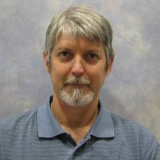
I am currently a Director at AsraZeneca in the Translational Medicine group. I am working on several aspects of ctDNA including endpoint analysis, landmark MRD analysis, and the emergence of resistance in IO therapy.
Kristy Stoudt, PhD, Biologist and Project Officer, Biomedical Advanced Research and Development Authority (BARDA)

Brian Strong, PharmD, Director, New Services Development, Walgreens Co.
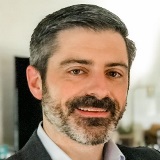
Brian Strong, PharmD, Director of New Services Development, has been with Walgreens for 20+ years and is currently responsible for launching new products and clinicals services that leverage pharmacist scope of practice across the nation - which includes point of care testing and providing care for low-acuity clinical services. Brian also helped lead Walgreens COVID-19 response and coordinated various levels and aspects of pharmacy operations.
Aarti Swaminathan, Manager, Human Factors/User Research, TE IVD Solutions

Aarti Swaminathan is the Manager of Human Factors and User Research at TE Connectivity IVD Solutions. In her time leading the User Research Division at the company, she has conducted 100+ usability studies and personally moderated 1000+ testing sessions on a wide range of medical devices for a variety of intended uses (medium-complexity, to CLIA-waived, Rx-home, and OTC). With degrees in Biotechnology Engineering and Biomedical and Health Informatics, she works to combine her passion for usable product design with her love of healthcare, medicine, and biology to make medical device products that are simple, easy, and safe for users of all levels of expertise.
Timothy Sweeney, MD, PhD, Co-Founder & CEO, Inflammatix, Inc.

Tim Sweeney, MD, PhD, is co-founder and CEO of Inflammatix. Tim has extensive experience in medical practice (general & trauma surgery), bench research, and bioinformatics/machine learning. While training at Stanford he helped invent the core technology on which Inflammatix is based, is named on over a dozen patents related to medical diagnostics, and has published >100 manuscripts & abstracts. He is PI (through Inflammatix) on multiple development contracts from DARPA, BARDA, and NIH, and brought Inflammatix to recognition as the ‘Most Disruptive Technology’ at AACC in 2019, and the “Fierce 15” list in 2020.
Shervin Tabrizi, MD, Radiation Oncologist, Massachusetts General Hospital

Dr. Shervin Tabrizi is a physician-scientist in the Department of Radiation Oncology at Massachusetts General Hospital and Harvard Medical School, and a researcher at the Broad Institute of MIT and Harvard and the Koch Institute for Integrative Cancer Research at MIT. His research focuses on liquid biopsies and combines approaches in genomics, protein engineering, and cancer biology to develop novel technologies for cancer detection. Dr. Tabrizi received his undergraduate degree in chemical and physical biology from Harvard College and his medical degree from Harvard Medical School. He completed his internship at Brigham and Women's Hospital and his residency in radiation oncology in the Harvard Radiation Oncology Program at Massachusetts General Hospital, Brigham and Women's Hospital, Boston Children's Hospital, and Dana-Farber Cancer Institute.
Rolf Thermann, PhD, Section Manager, IVD and Companion Diagnostics Lead, TÜV Rheinland LGA Products GmbH

Dr. Rolf Thermann is a Lead Auditor, IVD Product Expert, and TUVs leading Expert for Companion Diagnostics (CDx). Prior to joining TUV Rheinland, Dr. Thermann spent over 10 years in the Pharmaceutical and IVD industries in various leading roles in product development, including CDx products.
Sarah Thibault-Sennett, PhD, Senior Director, Reimbursement Policy, American Clinical Lab Association
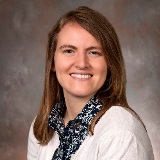
Sarah Thibault-Sennett joined ACLA in April 2023 as Senior Director of Reimbursement Policy. Sarah was previously the Director of Public Policy & Advocacy at the Association for Molecular Pathology (AMP). Her areas of expertise focus on coding, coverage, and reimbursement issues affecting molecular diagnostic tests. Additionally, she has a strong background in patient engagement and regulatory issues affecting molecular pathology. She has a PhD in Molecular and Cell Biology from the Uniformed Services University of the Health Sciences (USU) in Bethesda, MD, and a background in molecular genetics and developmental biology. She moved into public policy with the goal of increasing patient access to appropriate diagnostic testing.
HsianRong Tseng, PhD, Professor, Department of Molecular & Medical Pharmacology, David Geffen School of Medicine, UCLA
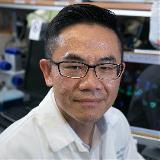
Dr. Tseng joined the faculty of David Geffen School of Medicine at UCLA in 2003. He is currently a Professor of Molecular & Medical Pharmacology, who also holds joint memberships in the California NanoSystems Institute, Crump Institute for Molecular Imaging, and Jonsson Comprehensive Cancer Center on the UCLA campus. His research interest falls in developing nanotechnology-enabled diagnostic and therapeutic solutions for cancer and genetic diseases.
Guillermo Umpierrez, MD, CDCES, FACE, MACP, Professor of Medicine, Emory University School of Medicine
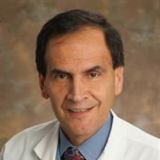
Dr. Umpierrez is professor of medicine in the division of endocrinology at Emory University School of Medicine, Director of the Grady Memorial Hospital Clinical Research Network, Atlanta-CTSA, and Director of the diabetes and endocrinology section at Grady Memorial Hospital. Dr. Umpierrez first joined the Emory University School of Medicine faculty in 1992. He is the recipient of numerous teaching awards for Best Clinical Teacher and Best Mentor of Endocrine Fellows and Junior Faculty at Emory University, J. Willis Hurst Outstanding Bedside Teacher Award, American College of Physicians, Outstanding Service Award for the Promotion of Endocrine Health of an Underserved Population, American Association of Clinical Endocrinologists' (AACE), the American Diabetes Association, 2013 Outstanding Physician Clinician in Diabetes Award, and the 2013-2014 Best Grand Rounds Lecture Award, Department of Medicine at Emory University. He is a member of the National Board of Directors for the American Diabetes Association and the American Association Clinical Endocrinologists, as well as a member of the Endocrine Society Clinical Guideline Committee and American Association Clinical Endocrinologists Diabetes Scientific Council. His research interests include mechanisms for Beta-cell dysfunction in minority populations and the management of inpatient hyperglycemia. He is a national and international leader in the field of hospital management of diabetes and has published several landmark papers and guidelines in the field of inpatient diabetes. His research program is currently funded by the National Institutes of Health and American Diabetes Association, and by investigator-initiated research trials aiming to determine best insulin protocols for the management of hospitalized patients with diabetes. He heads the Emory Latino Diabetes Education Program, a nationally accredited Spanish Diabetes education program dedicated to providing diabetes education to Latinos. Dr. Umpierrez is the Editor-in-Chief of the American Diabetes Association Therapy for Diabetes Mellitus and Related Disorders, 6th Edition Textbook (Green Book), and the Editor-in-Chief of the BMJ Open Diabetes Research & Care (ADA and BMJ Collaborative project). He has published more than 200 scientific manuscripts and book chapters, and has presented over 180 research abstracts at national and international scientific meetings.
Kenneth Valkenburg, PhD, Director of Research & Development, Labcorp Oncology
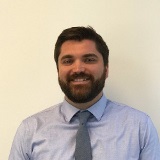
Dr. Valkenburg is a Molecular and cellular cancer biologist leading the research and development team at PGDx developing NGS assays to detect actionable genomic alterations in cancer. Product development experience is inclusive of RUO, IUO, LDT, FDA-IVD, and CE-IVD assays. He has fourteen years of experience studying biological processes involved in cancer and developing diagnostic tests for cancer as well as a history of completing complex projects and subsequently publishing peer-reviewed articles. He is a highly collaborative researcher, having developed collaborations at institutions throughout the US. In his professional career, he has mentored and managed students, technicians, and product development scientists. He is a skilled communicator and has presented research at over 30 scientific meetings.
Hannah Wang, MD, D(ABMM), Assistant Professor of Pathology, Cleveland Clinic, Lerner College of Medicine; Medical Director, Molecular Microbiology & Virology Laboratories, Robert J. Tomsich Department of Pathology and Laboratory Medicine, Diagnostics Institute, Cleveland Clinic

Hannah Wang, M.D., is the Medical Director of the Molecular Microbiology and Virology Laboratory in the Robert J. Tomsich Pathology and Laboratory Medicine Institute at Cleveland Clinic in Cleveland, Ohio. Dr. Wang earned her M.D. at the Cleveland Clinic Lerner College of Medicine, and received residency training in Anatomic and Clinical Pathology, as well as fellowship training in Medical Microbiology, at Stanford Hospitals and Clinics. Dr. Wang’s research interests include the development and evaluation of novel infectious disease molecular diagnostics, and biomarker discovery for virally-associated neoplasms.
Jeff Tza-Huei Wang, PhD, Louis M. Sardella Professor, Whiting School of Engineering; Professor, Departments of Mechanical Engineering, Biomedical Engineering, Materials Science & Engineering, Oncology, and Medicine; Professor, Institute for NanoBioTechnology, Johns Hopkins University

Tza-Huei (Jeff) Wang is the Louis M. Sardella Professor in Mechanical Engineering and Biomedical Engineering at the Johns Hopkins University, where he has served as faculty since 2002. He earned his doctorate in Mechanical Engineering from UCLA in 2002. His research focuses on the development of innovative micro- and nanobiotechnologies for molecular analysis and biomedical research. His vision is a healthier and more equitable world that is realized through new molecular analysis and diagnostic technologies that not only have unprecedented performances in sensitivity, specificity, speed, multiplexity, and temporal and spatial resolution, but are also affordable and accessible to the public. Dr. Wang is a prolific researcher and inventor. He has authored 200 journal articles and 120 conference papers and delivered 150 invited talks. He currently holds 26 US and 12 foreign patents. He has received numerous awards, including the NSF CAREER Award, the CRS Jorge Heller Award, the JALA Ten Award, and the Cohen Translational Engineering Award. He has been inducted as a Fellow of the American Association for the Advancement of Science (AAAS), the American Institute for Medical and Biological Engineering (AIMBE), the American Society of Mechanical Engineering (ASME), the Institute of Electrical and Electronics Engineers (IEEE), and the Royal Society of Chemistry (RSC).
Songbai Wang, MD, MSPH, Head, Precision Informatics, Oncology Precision Medicine and Diagnostics, Johnson & Johnson

Dr. Songbai Wang is senior scientific director and head of precision informatics at Johnson & Johnson Innovative Medicine. In this role, he is responsible for overseeing data analytics and design of experiment to support oncology diagnostics and precision medicine programs. Previously Dr. Wang was Director of Biostatistics and Bioinformatics at Janssen Diagnostics/Johnson & Johnson where he built a high-performance statistics, informatics and data management team to accelerate development of companion and complementary diagnostic tests. Throughout his 30-year industry and academic career, Dr. Wang provided statistics and study design expertise for 35 regulatory submissions including BLAs, PMAs, NDA and 510Ks in areas of oncology, immunology and infectious diseases, and authored/co-authored 20 plus peer-reviewed manuscripts. Dr. Wang's long career history includes Deputy Director of Clinical Epidemiology, Biostatistics and Medical Informatics at China-Japan Friendship Hospital, Research Biostatistician at University of Michigan Cancer Center, Associate Director of Clinical Affairs at Gen-Probe, and leadership positions with increasing responsibilities at multiple Johnson & Johnson business units in New Jersey, USA and in Beerse, Belgium.
John Warren, Owner and Principal Consultant, Gettysburg Healthcare Consulting, LLC

Warren has spent nearly 30 years in the healthcare sector with 22 years at the Centers for Medicare & Medicaid Services (CMS) and more than 7 years as a consultant to clients in the healthcare sector. While at CMS, Warren directed the staff responsible for establishing Medicare payment policy for physician services and non-physician services, including physician and non-physician office services, clinical diagnostic laboratory, Part B drugs, RHC/FQHC andambulance services. As an industry consultant, Warren assisted clients in the clinical diagnostic laboratory, pharmaceutical, and physician specialty spaces to navigate the complex legal and regulatory environment surrounding the Medicare and Medicaid programs. He often served as liaison between CMS staff and clients, facilitating discussions about policies and payment rates, securing favorable outcomes for his clients.
Richard Watts, Vice President, Business Development, Companion Diagnostics, QIAGEN

No bio available.
Lawrence Worden, Founder, Principal, IVD Logix

Larry has over 45 years of experience in the diagnostics industry. He is the Principal and Founder of IVD Logix and also co-founded Market Diagnostics International, where he developed the IVD Insights and IVD Labfile syndicated databases on in vitro diagnostic testing. Prior to that, he was a senior consultant and co-founder at CaseBauer & Associates, an international business development and research firm exclusively focused on in vitro diagnostics. He has held senior legislative/regulatory affairs and market research positions with Becton Dickinson and Company, AdvaMed, and IQVIA. He is the most recent Past President of the Diagnostics Marketing Association and currently serves on the editorial advisory board of Inside Precision Medicine and the programming advisory board of the Cambridge Healthtech Institute.
Rena Xian, MD, FCAP, Assistant Professor, Pathology and Oncology, Johns Hopkins Medical Institutions

Dr. Rena Xian is an assistant professor of Pathology and Oncology at the Johns Hopkins University School of Medicine, and an associate director of the Molecular Diagnostic Laboratory. Her areas of clinical expertise include diagnostic hematopathology and molecular pathology. She has developed numerous molecular assays, and is an expert in clinical next-generation sequencing. Her research focuses on genetic alterations of hematologic malignancies, particularly B-cell neoplasms in the setting of HIV, and non-invasive disease biomarkers, such as cell-free DNA. Dr. Xian is interested in the application of large-scale genomics and novel molecular techniques to cancer diagnosis, prognosis and therapeutics. Dr. Xian is also passionate about medical education, and the training of genetically-informed physicians. She is active in several professional societies, including the Association for Molecular Pathology, the College of American Pathologists, the Society for Hematopathology, and the American Society of Hematology.
Rebecca Yee, PhD, D(ABMM), Chief of Microbiology and Assistant Professor, Department of Pathology, George Washington University

Dr. Rebecca Yee is the chief of microbiology and director of the clinical microbiology and molecular microbiology laboratory sections at George Washington University Hospital, in Washington, D.C. She is also an assistant professor in the Department of Pathology at GW School of Medicine and Health Sciences. Dr. Yee completed a fellowship in clinical microbiology at Children’s Hospital Los Angeles and became a diplomate of the American Board of Medical Microbiology. Dr. Yee earned her PhD from Johns Hopkins University and her bachelor’s degree from the University of Pennsylvania. She currently serves on working groups and committees of Clinical Laboratory Standards Institute, the American Society for Microbiology, and the Association for Molecular Pathology. Her research interests focus on the development of novel diagnostic tools for infectious disease diagnoses and exploring the role of novel diagnostics in facilitating antimicrobial stewardship programs to reduce costs, optimize therapeutic outcomes and reduce antimicrobial resistance. Most recently, she was selected as the 2023 American Society for Clinical Pathology 40 Under Forty Top Five.
Roman Yelensky, PhD, Founder and CEO, Serum Detect, Inc.
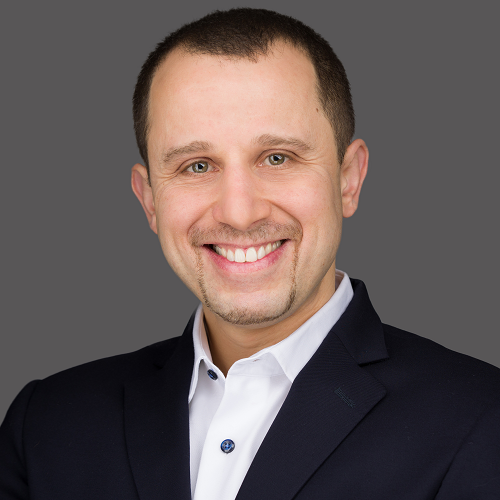
Roman Yelensky, Ph.D. is Serum Detect’s founder and CEO. Previously, Roman was Gritstone bio’s first employee and chief technology officer, leading the development and GMP implementation of the EDGE tumor neoantigen identification platform. Prior to Gritstone, Roman was vice president at Foundation Medicine, which he joined at its inception as employee #6. At Foundation Medicine, Roman co-led algorithm development and sequence data analysis for FoundationOne™ and led validation studies supporting clinical laboratory accreditation and testing of more than 100,000 cancer patients. Roman established and led Foundation Medicine’s FDA-regulated products program, resulting in FDA approval of the first NGS-based companion diagnostic. He received a Ph.D. in bioinformatics and genomics from MIT with research at the Broad Institute and Massachusetts General Hospital, has co-authored 75 manuscripts, and is co-inventor on over 20 issued patents.
Linda K. Zane, PhD, Program Director, SBIR Development Center, National Cancer Institute
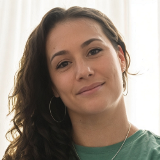
Dr. Linda Zane is a Program Director in the Small Business Innovation Research (SBIR) Development Center at the National Cancer Institute (NCI). Dr. Zane manages a portfolio of small businesses with a focus on cancer diagnostics, therapeutics and novel tools for research and drug discovery. She provides guidance to applicants and awardees while also informing them of NIH resources to develop stronger applications and commercialization strategy. Additionally, she plays an active role and represents NCI’s SBIR Development Center in some NCI and trans-NIH programs including the NCI technology interest group, the NCI Innovative Molecular Analysis Technologies (IMAT) and the Somatic Mosaicism Across Human Tissues (SMaHT) Common Fund Programs. Prior to coming to SBIR, Dr. Linda Zane was a program director in the Division of Cancer Biology where she managed a portfolio of grants focusing on genomic variation, omics technologies, and 3D genome architecture. Before that, she was in the NCI Division of Cancer Treatment and Diagnosis (DCTD) where she first acquired some experience in regulatory affairs and technology transfer in the Regulatory Affairs Branch at the Cancer Therapy Evaluation Program (CTEP). She gained program management experience in the Diagnostic Biomarkers and Technology Branch of the Cancer Diagnosis Program (CDP), which stimulates and supports research to develop new biomarkers, diagnostic strategies, modeling, innovative technologies, and improved devices. Dr. Zane received a Ph.D. in Oncovirology from the University Claude Bernard Lyon I, a M.Sc. in Biotechnology Engineering from the University Bordeaux II, and a B.Sc. in Biochemistry from Pierre and Marie Curie University Paris VI in France. She completed post-doctoral research in Dr. Kuan-Teh Jeang’s lab at NIAID and then in Dr. Tom Misteli’s lab at NCI.
Roger Zemp, PhD, Associate Professor, Electrical & Computer Engineering, University of Alberta

Dr. Zemp received his BSc in Physics from the University of Alberta in 1998, an MSc in Electrical & Computer Engineering from the University of Toronto in 2000, and a PhD in Biomedical Engineering from the University of California, Davis in 2004. He worked as a postdoctoral research associate in the Departments of Biomedical Engineering at Texas A&M University and at Washington University in St. Louis until 2007. He is currently a Professor of Electrical & Computer Engineering and an Adjunct Assistant Professor of Biomedical Engineering at the U of A.
講演者・スポンサー更新
講演者更新
スポンサー更新
2024年 カンファレンスプログラム
















